'They learn how to make a positive difference to
the education life chances of pupils'.

Ofsted, 2023
School Direct at Turton
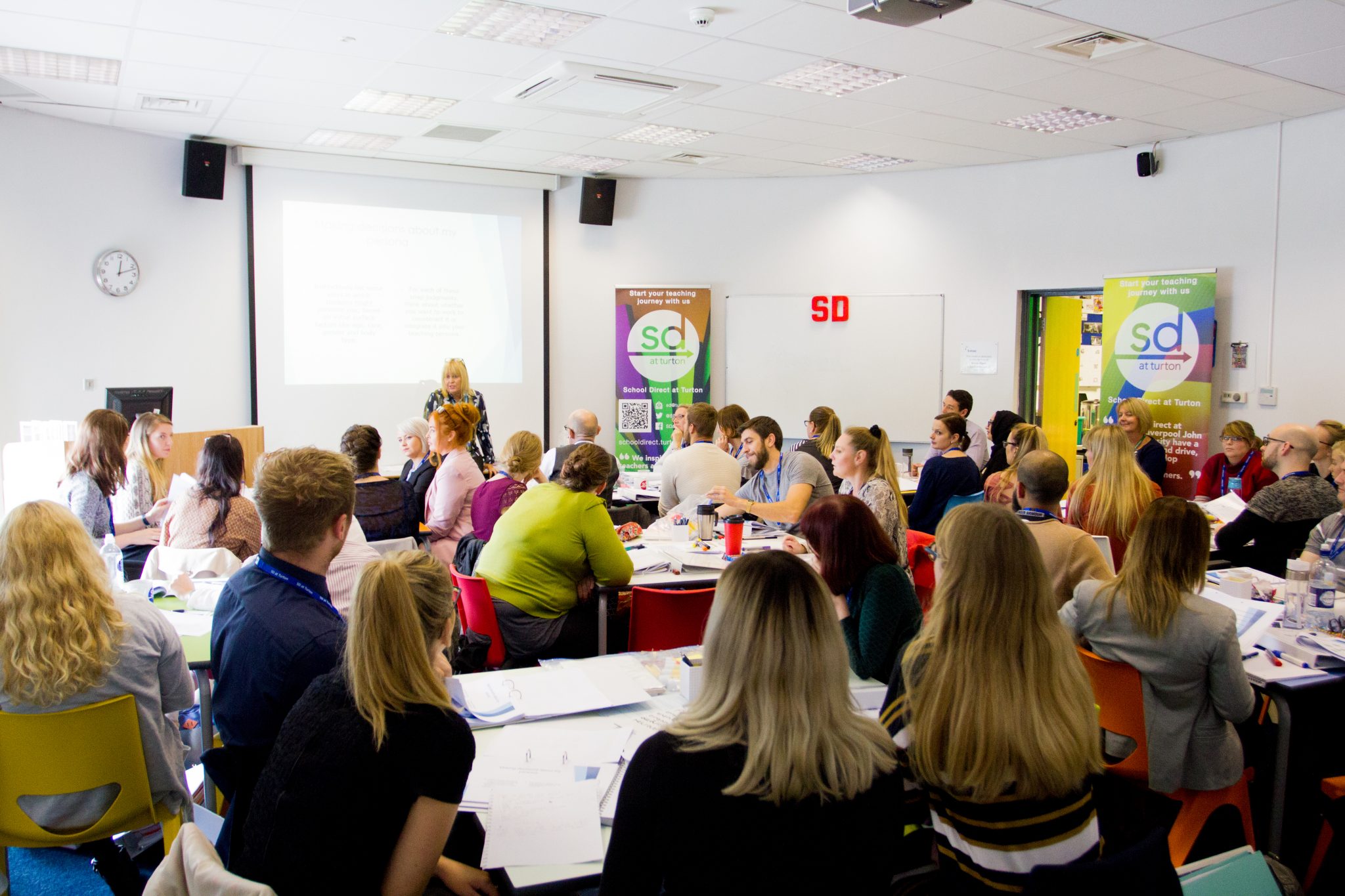
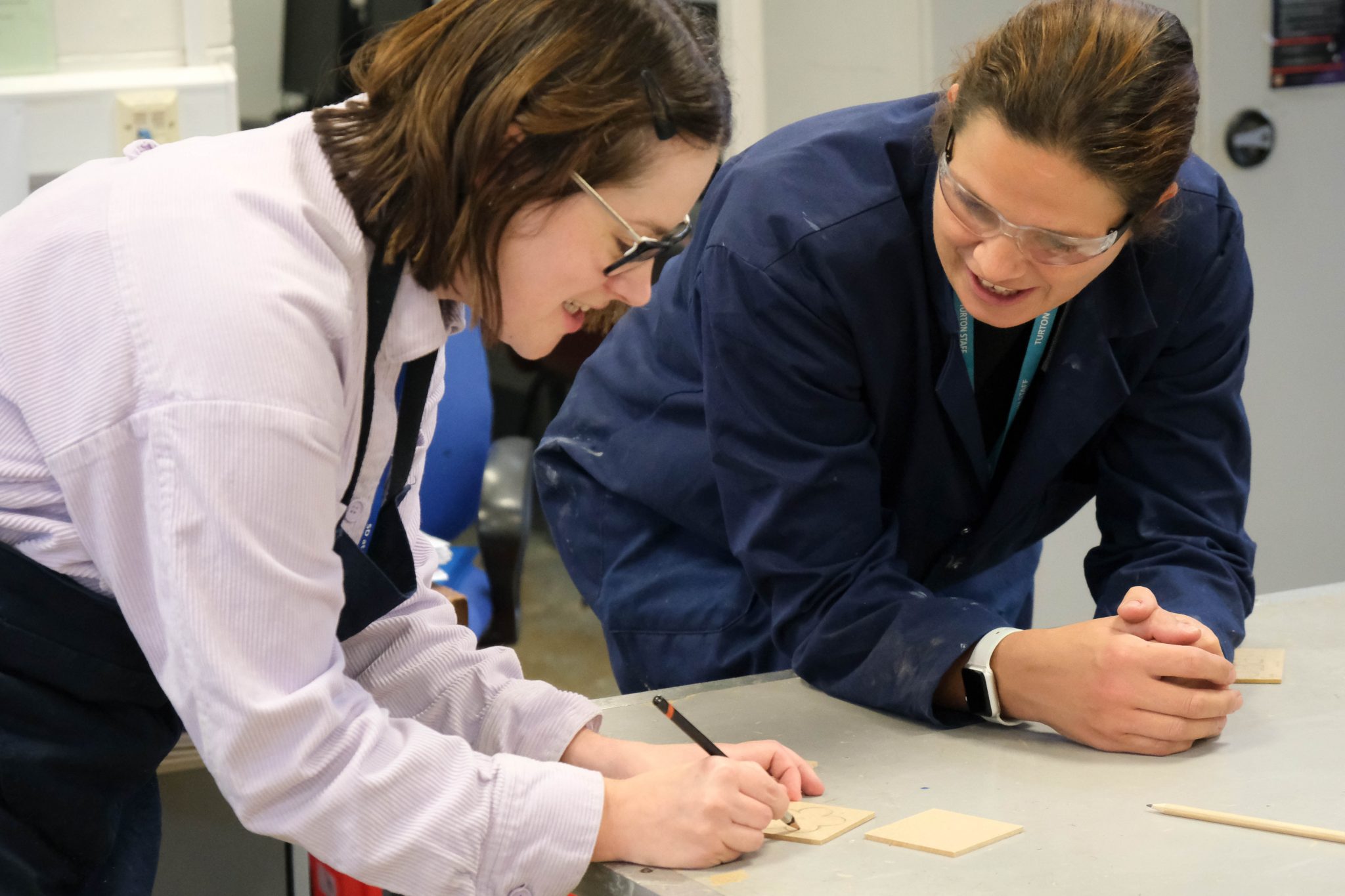
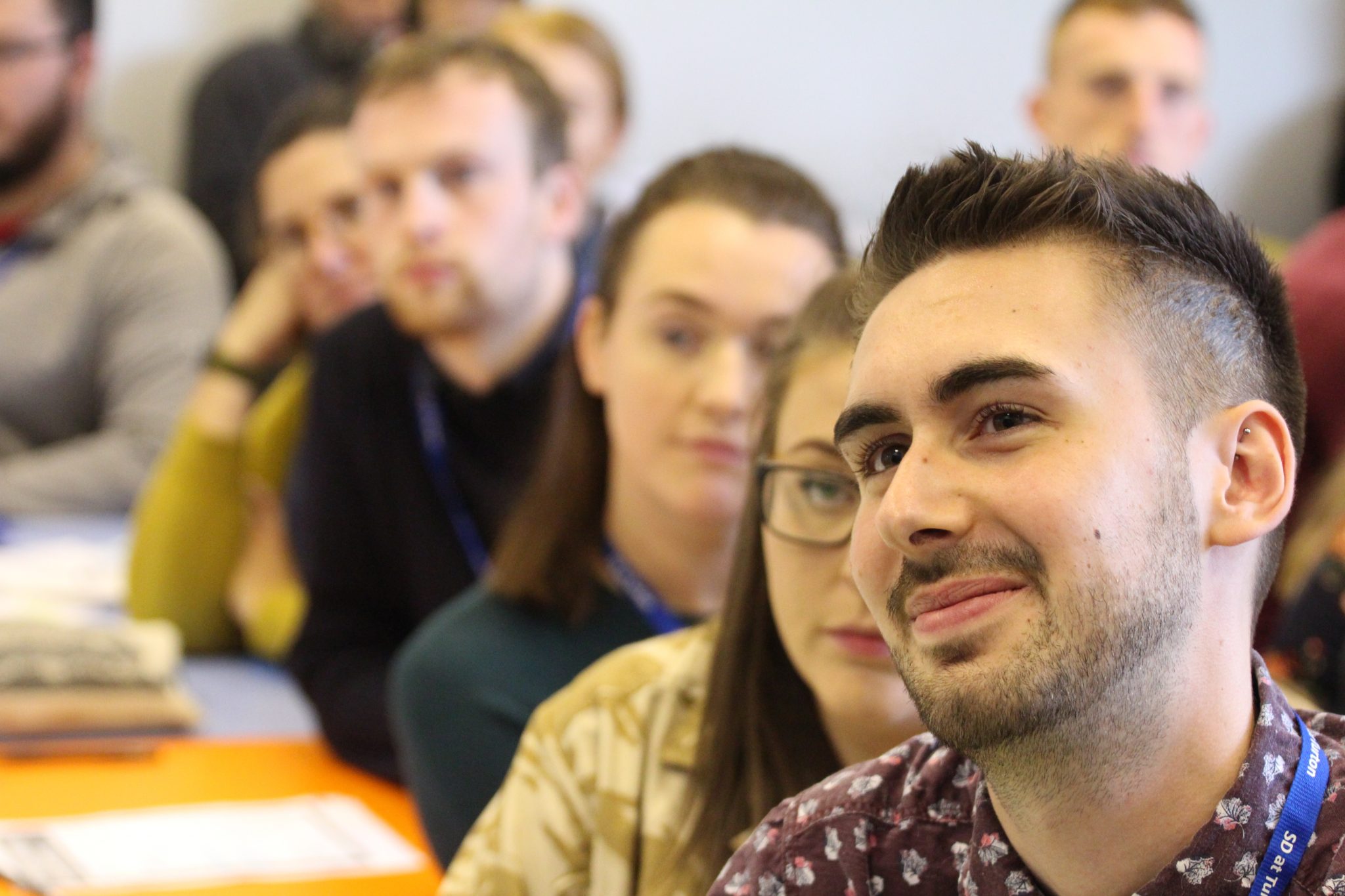
School Direct at Turton is an Initial Teacher Training programme – a lead partner within the Liverpool John Moores University partnership.
Our teaching hub is based at Turton School, Bolton, along with our partnership schools in and around the locality, expanding out to Greater Manchester, East and West Lancashire.
We offer a 1 year full-time training programme via Early Years, Primary or Secondary routes, awarding PGCE with QTS at the end of the course


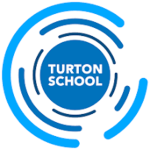

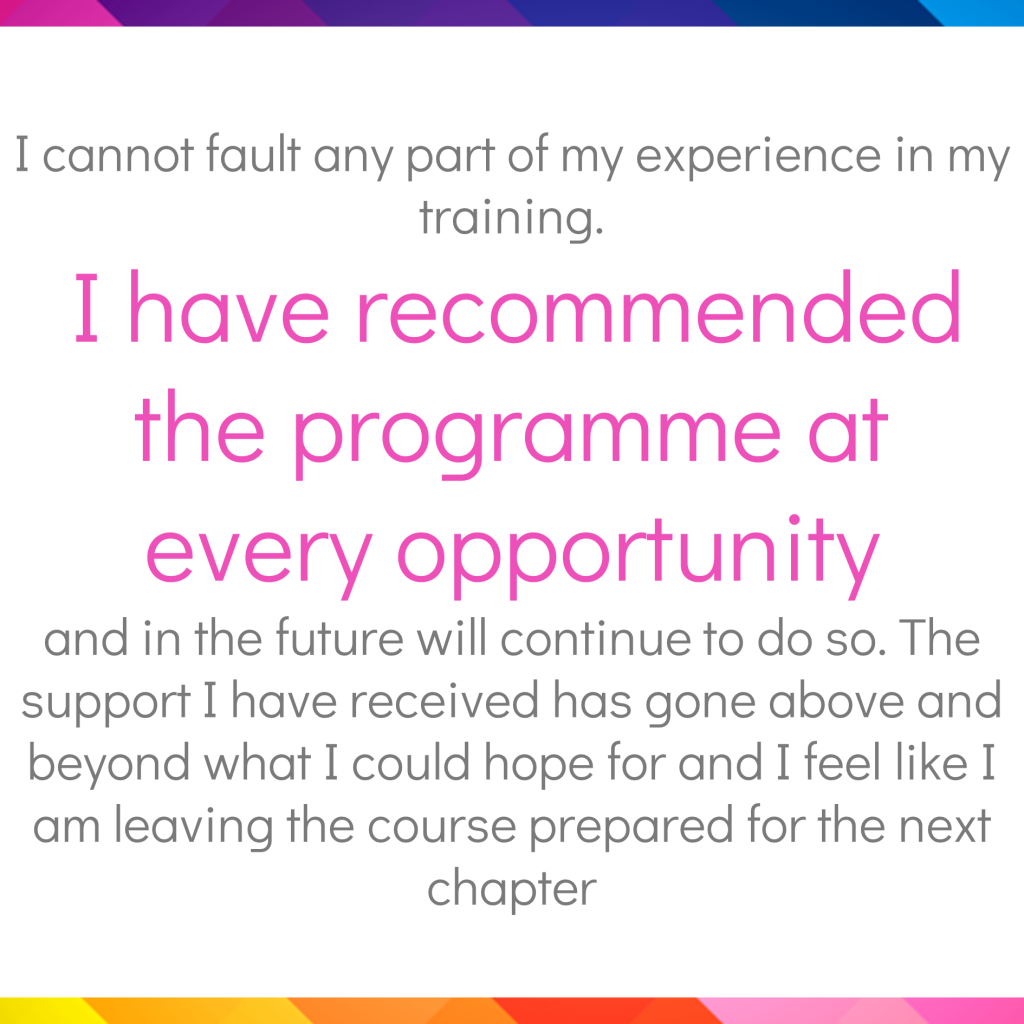


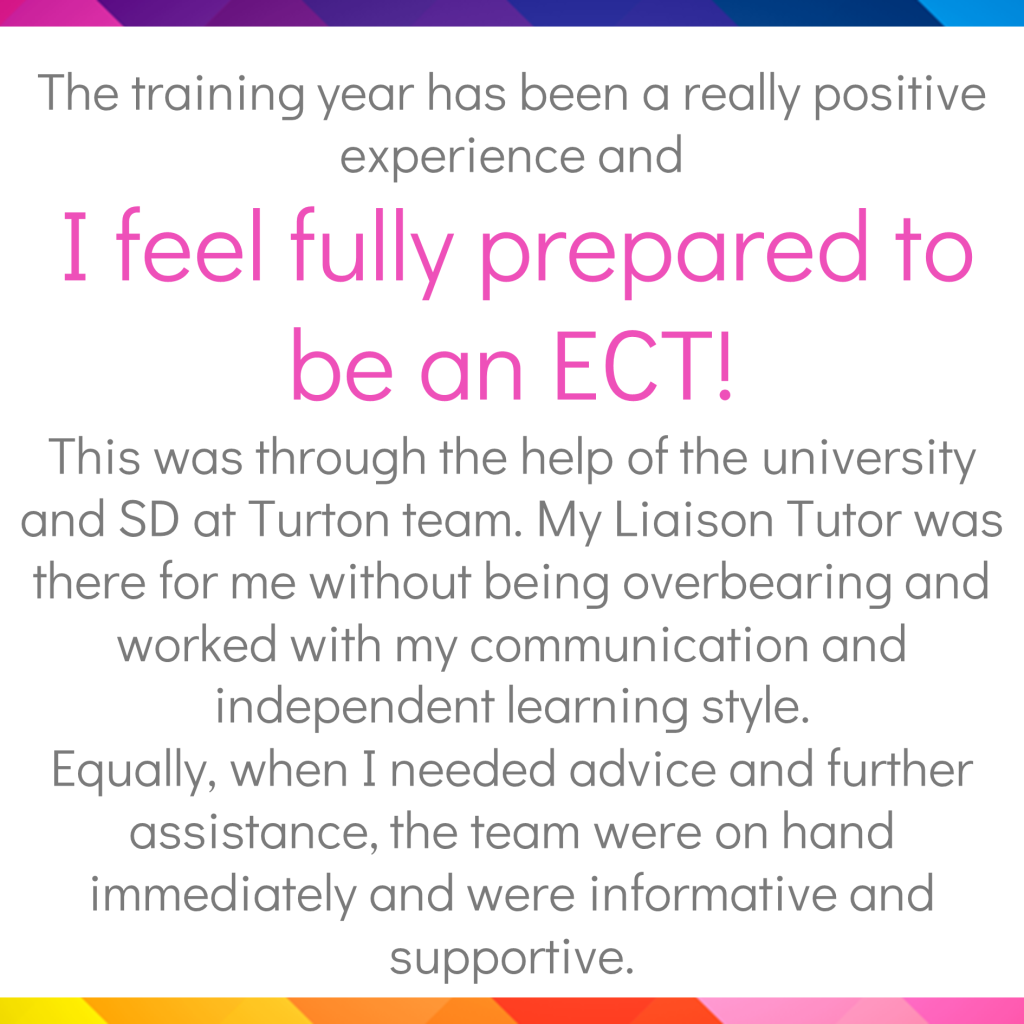

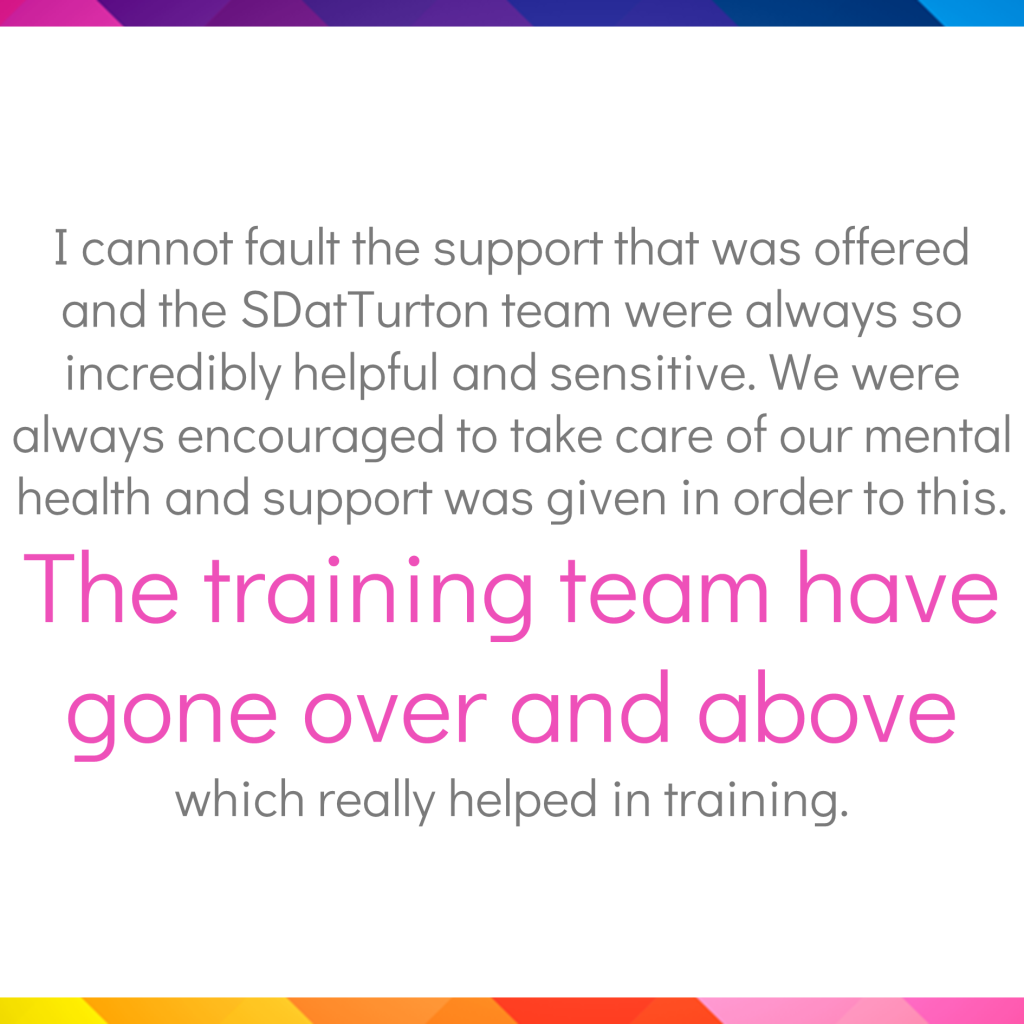

1. The University
University tutors will deliver the PGCE element of the programme (two academic assignments).
You will have a university (liaison) tutor, who will act as a link between LJMU and SDatTurton. Their role is to support you whilst quality assuring the programme. Lecturers and tutors travel to the SDatTurton training hub in Bolton to deliver all training sessions on Wednesdays (secondary) and Fridays (primary).

2. ITT Lead Partner
From the selection process through to recommendation for QTS, we deliver our centre-based training at our training hub, at Turton School, Bolton, as well as allocating placements and assessing your performance.
We support you through the journey by visiting you regularly at your placement school and having regular check ins at the training hub on training days. We offer professional advice, guidance and personal support, as well as access to specialist teachers and experts in education.

3. Placement School
Placement days are Monday, Tuesday, Thursday (all programmes) and Friday (secondary only). The team will also consider your travel arrangements, and aim to place you no longer than a 30 minute drive away.
You will be allocated an ITT mentor who will support you in your day to day training, in addition to the SDatTurton team and university tutor.




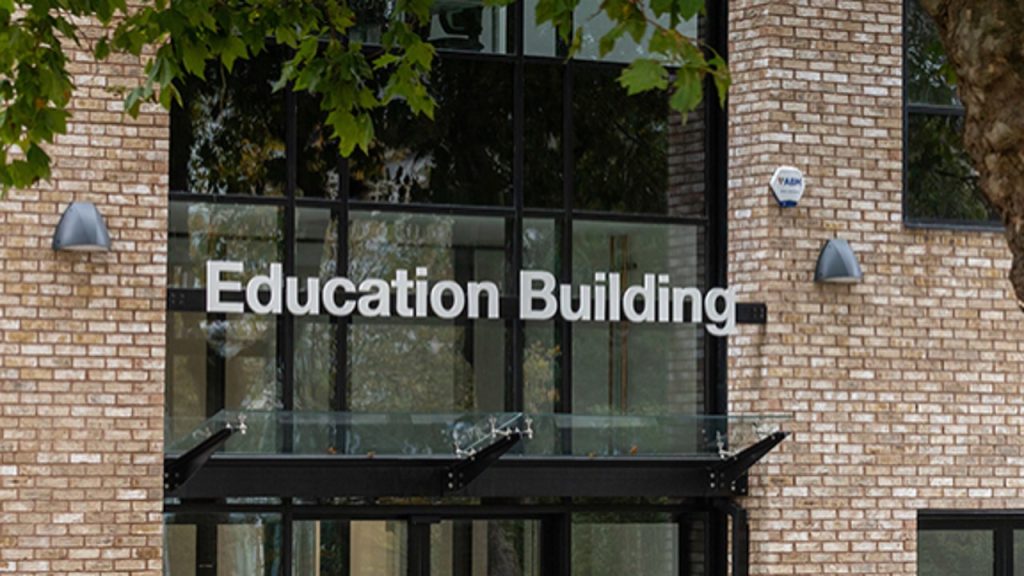
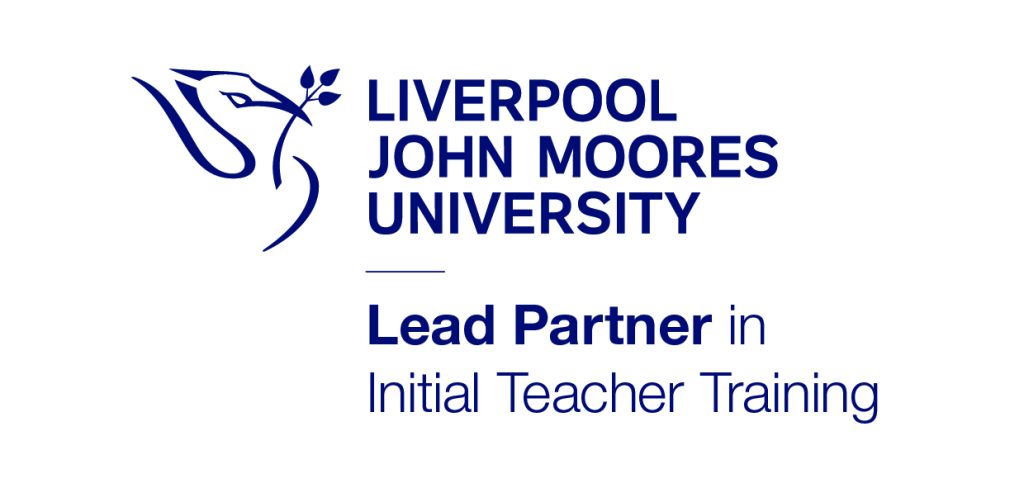
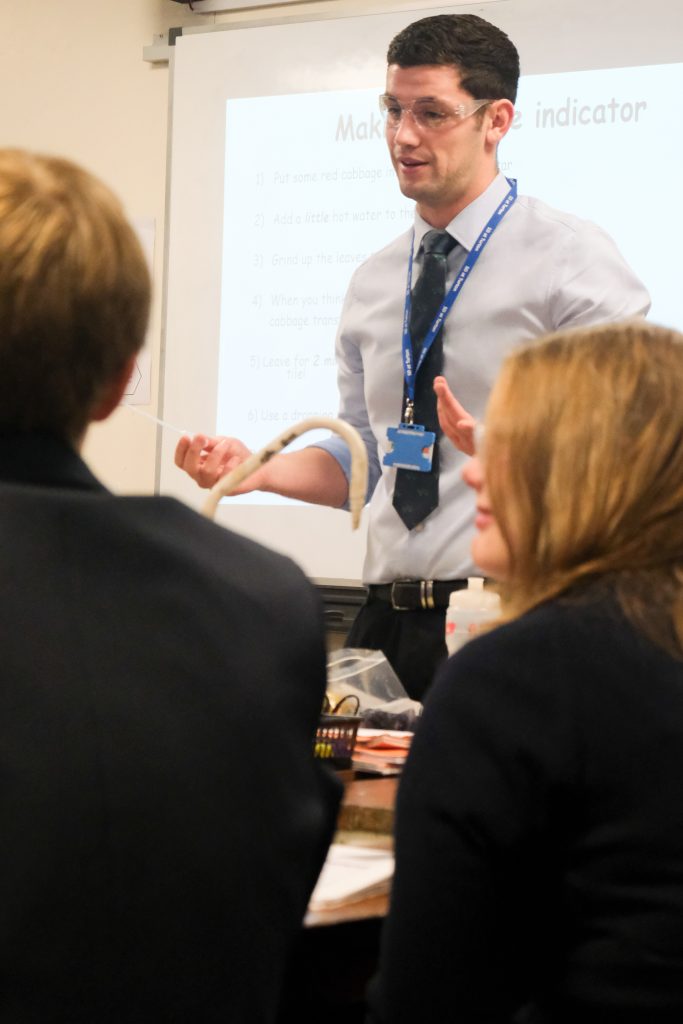
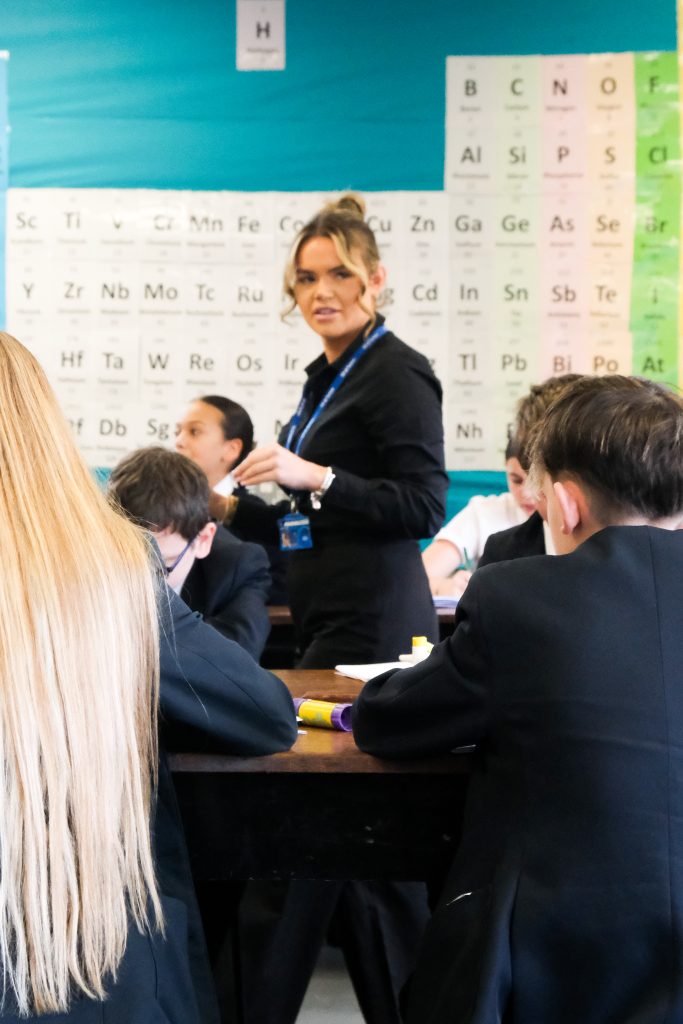
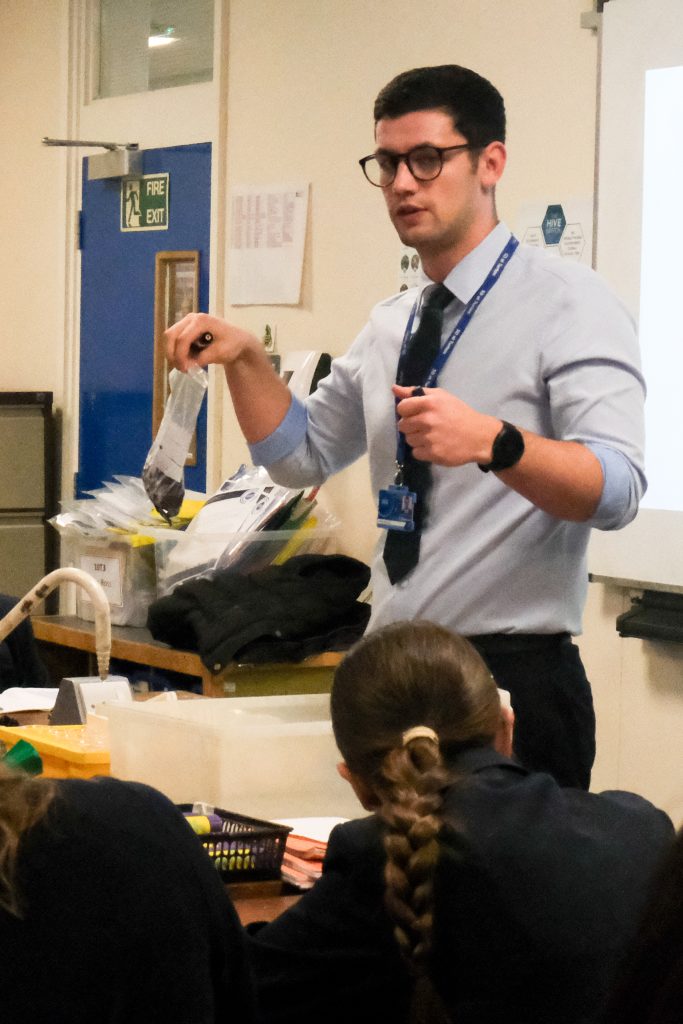
We are delighted to be working with our university partner, Liverpool John Moores University, who support our aims of working creatively and flexibly with you, to provide the highest quality training.
The PGCE with QTS programme gives you 60 credits towards a Master’s degree.
We are proud of our reputation and strategic partnerships with the university and partnership schools across the North West.
'When we set up our School Direct programme we wanted to work with a university partner who shared and supported our aims of working creatively and flexibly, to provide the highest quality training.
We found exactly what we wanted in the team at LJMU. Collaboration is a shared value and together we have designed and delivered a ‘first of a kind’ teacher training programme for Bolton. This route and this programme have proven to be excellent ways for schools in Bolton and across the North West, to work together to identify and grow talented teachers. We are proud of our partnership and excited to see what the future holds'.
Jo Parr, Programme Director, School Direct at Turton
'We are fully committed to working with schools to ensure the supply of a well-qualified, committed and socially engaged workforce able to take on the challenge of ensuring that all learners succeed. We know that genuine collaboration with school partners is key to the success of our initial teacher education programmes. We take our responsibility of listening to schools seriously and strive to involve our school partners in all that we do, from recruitment and course design and development, to the award of Qualified Teacher Status.
For more information about how LJMU work in partnership with lead schools across the North West, click here.
The
Team
They had a vision and track record across primary and secondary phases and like us, had a desire to be innovative, whilst achieving excellent outcomes for everyone. We all recognised the strength that partnership could bring to ITT
.
A shared vision and respectful relationships drove the development of School Direct at Turton and collaboratively we designed and began to deliver an ITT curriculum in Bolton, in partnership with schools across the northwest.
Here we are eight years later with a programme that skilfully melds theory and practice and a reputation for ITT that the whole team is proud of. With thirty seven years classroom teaching experience behind me, working with student teachers is exciting and developmental. Every day I learn so much from working with new talent.'

However, it is seeing that love and passion for English being fostered in the young people before me, which keeps me teaching. Over the past thirteen years, I have had success in a range of curricular roles - from design, to implementation and management- which have naturally evolved into leading on staff development within Teaching and Learning.
Through Teacher Development, this now feels like a 'full-circle-moment', in being that same support which I found so invaluable, as a trainee.'
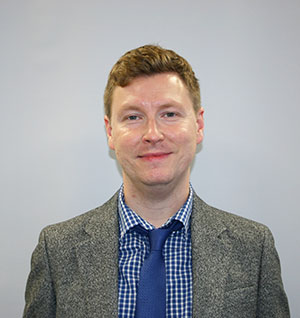
English Teacher
After training with School Direct at Turton and establishing myself as a classroom teacher, I wanted a role that would allow me to work with new teachers who are having the same experiences as I did in my training year.
Being a professional mentor allows me to train, support and celebrate with the future of this brilliant profession!'
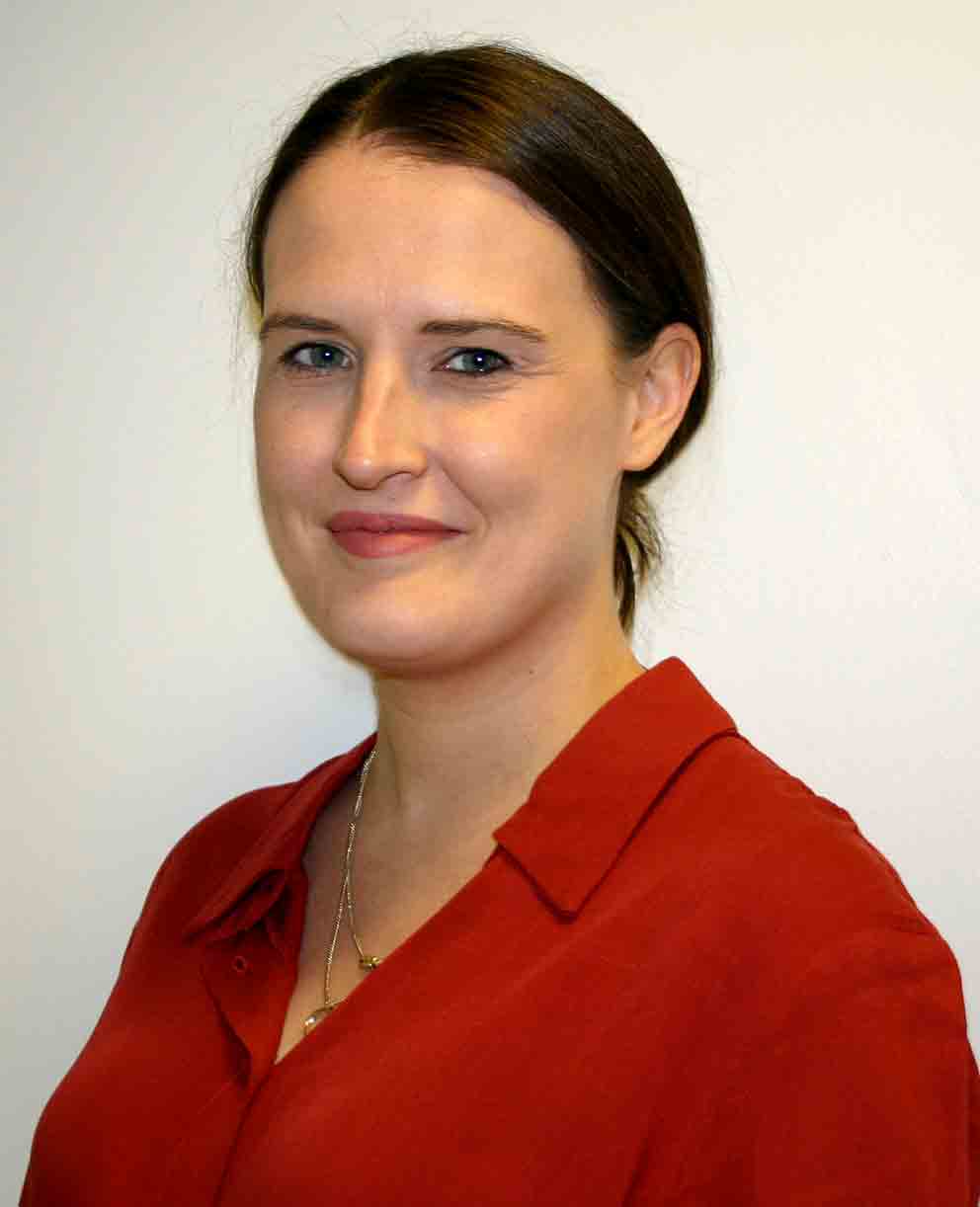
Media Teacher
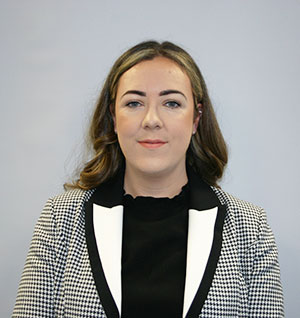
English Teacher
I bring with me a wealth of experience to the School Direct at Turton team, I have taught in the primary sector for 12 years and I am now employed at Turton as a Primary teacher, providing intervention and support for KS3 pupils. I am thrilled to be a professional mentor, supporting and guiding our Primary student teachers through this process and into a successful and happy career.
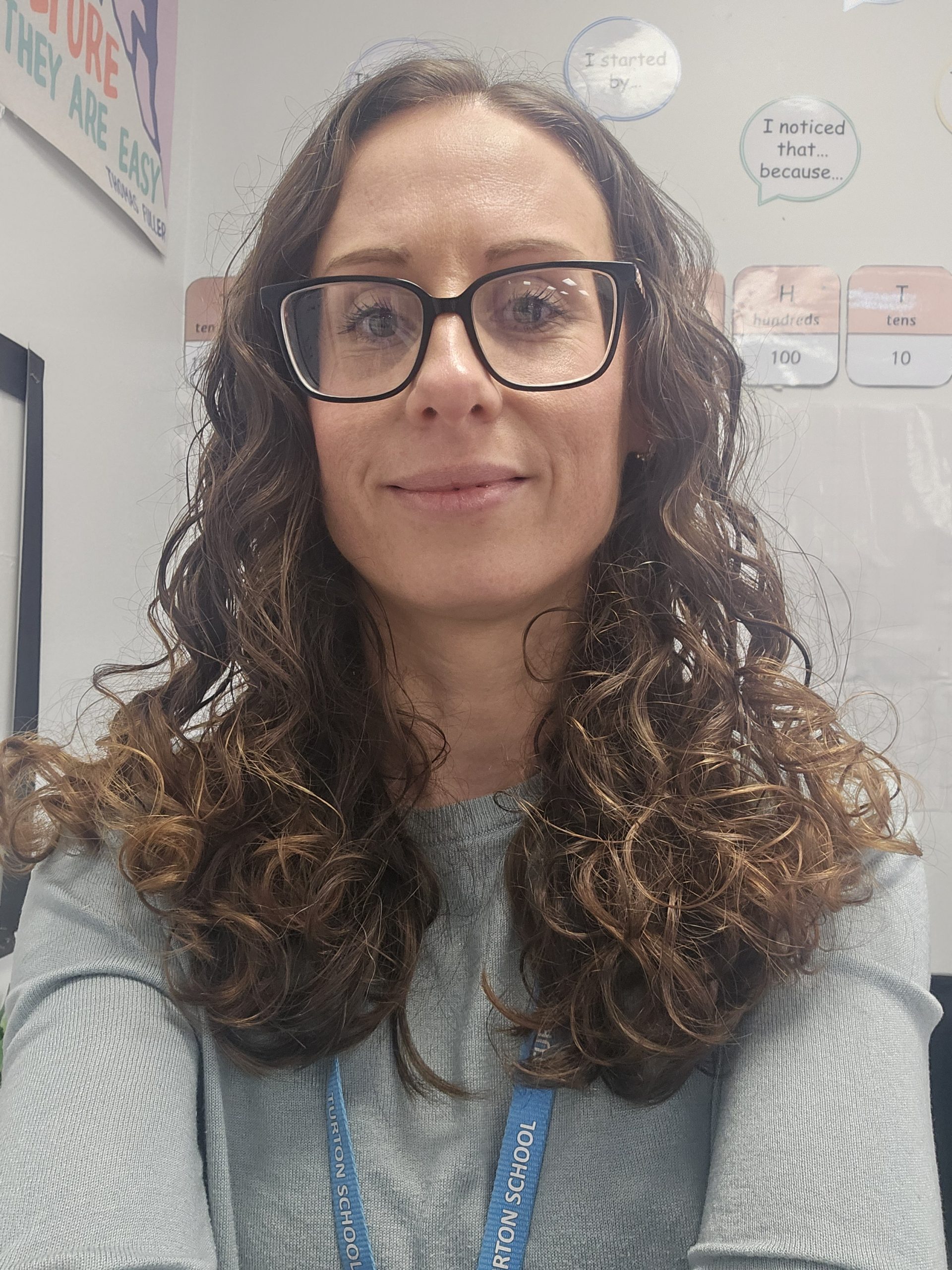
Primary specialist (in Secondary setting)
'The LJMU Partnership recognises that school ITT Mentors are fundamental to the quality of the student teachers' learning experiences and to the success of individual student teachers and our ITE programmes.'
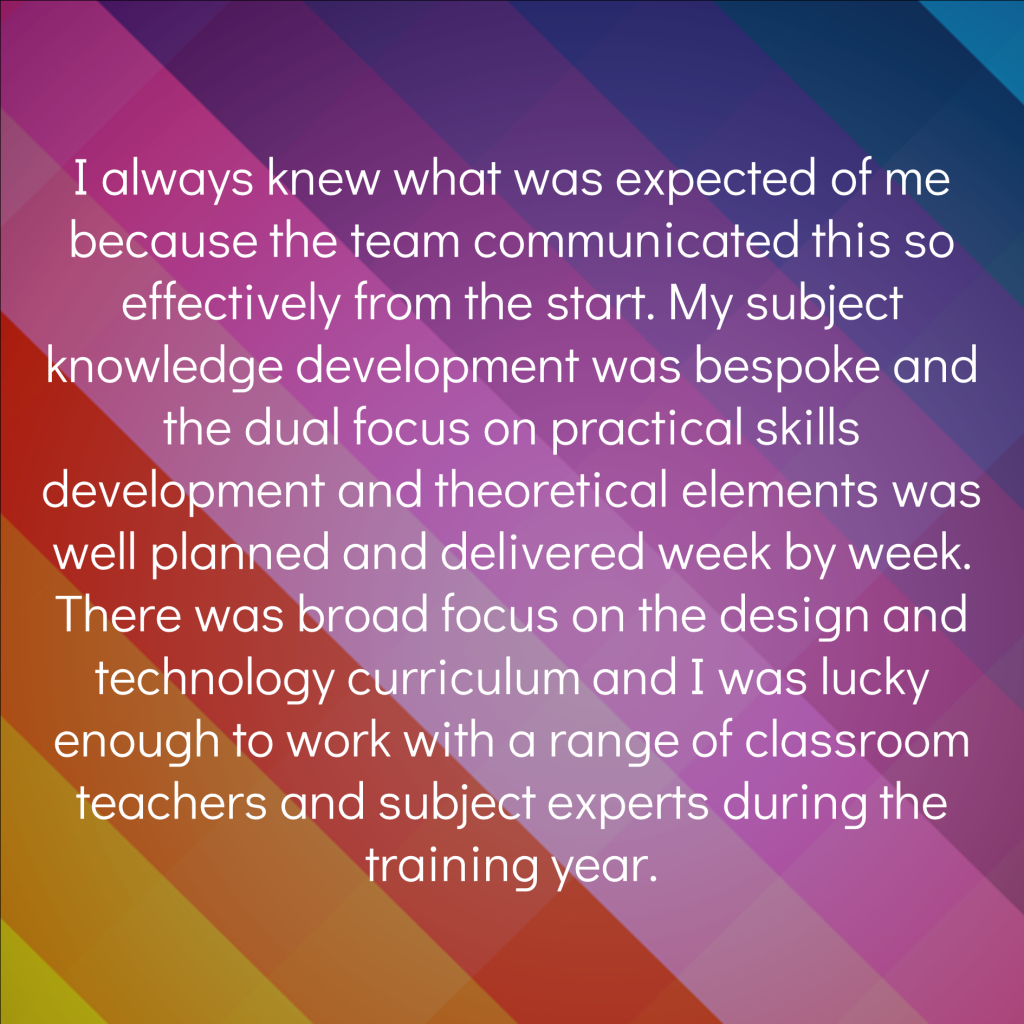
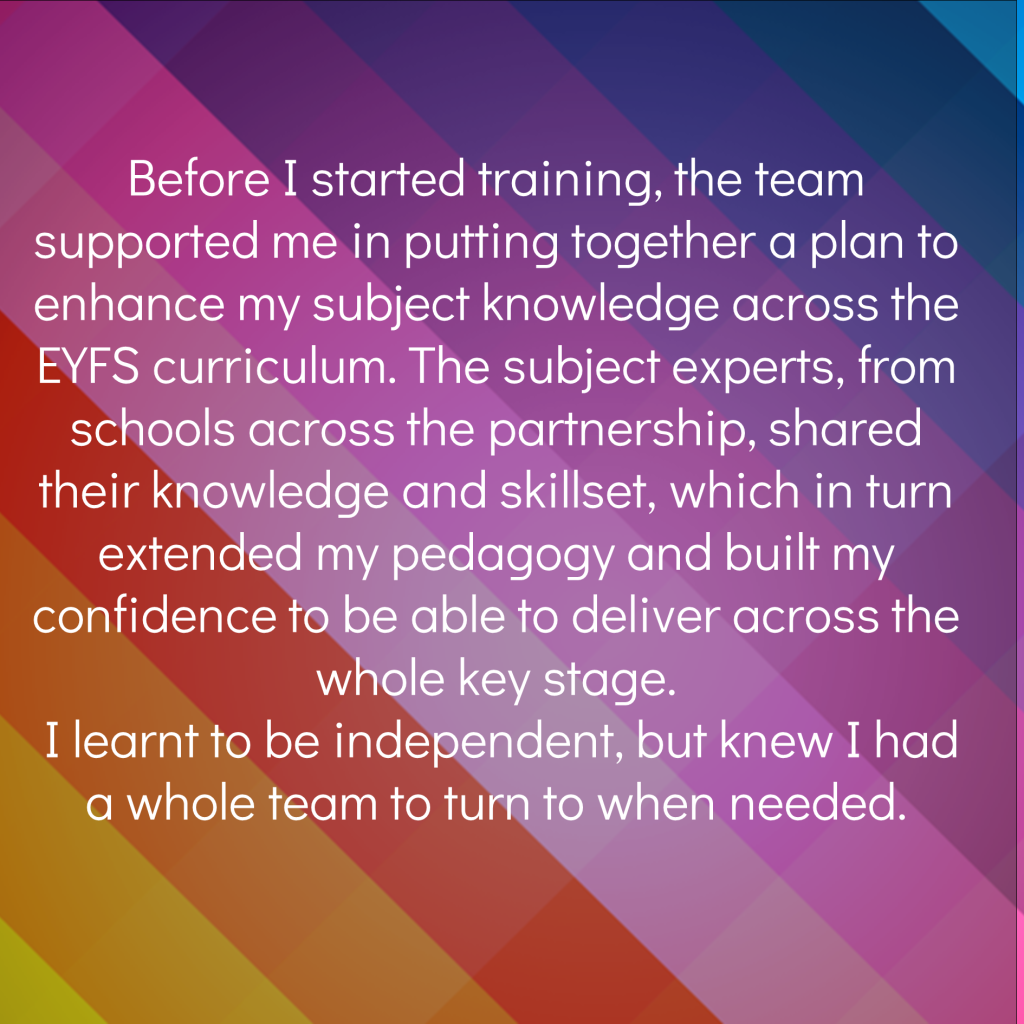
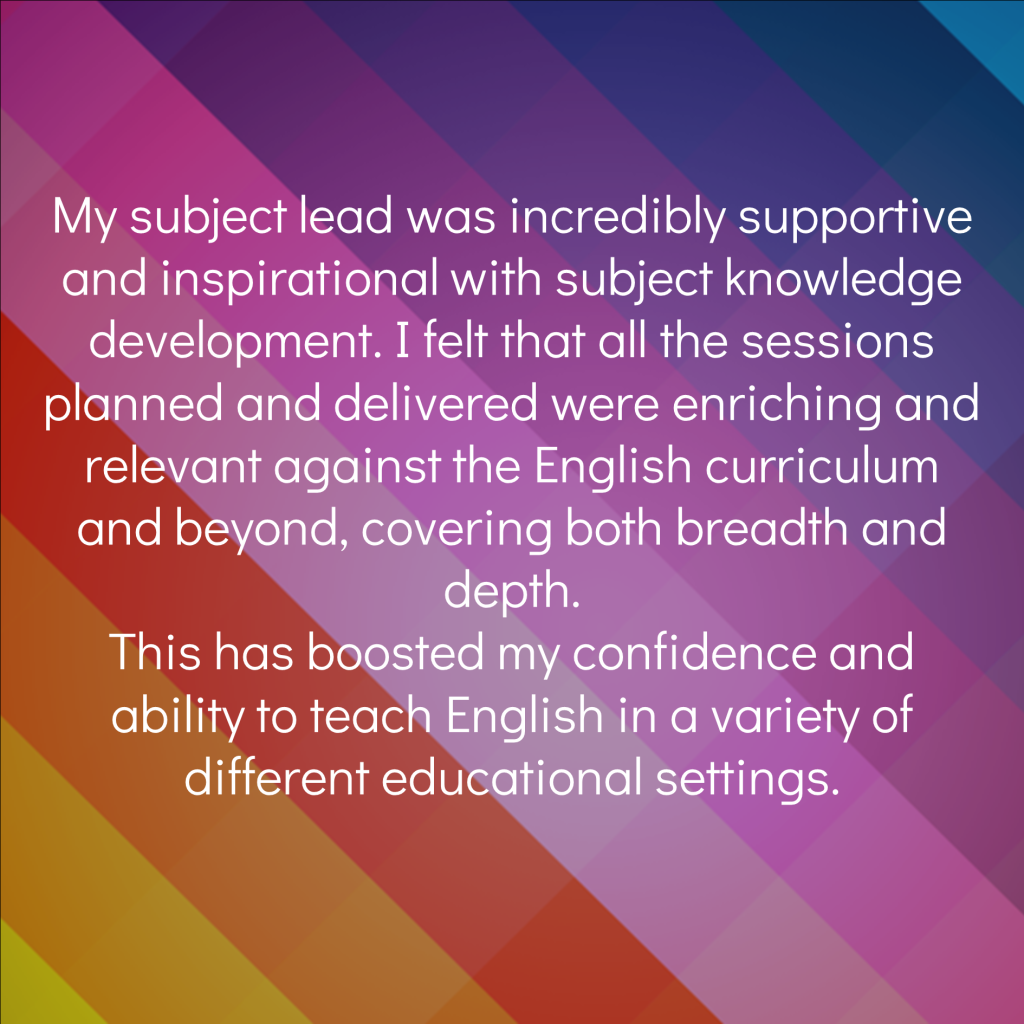
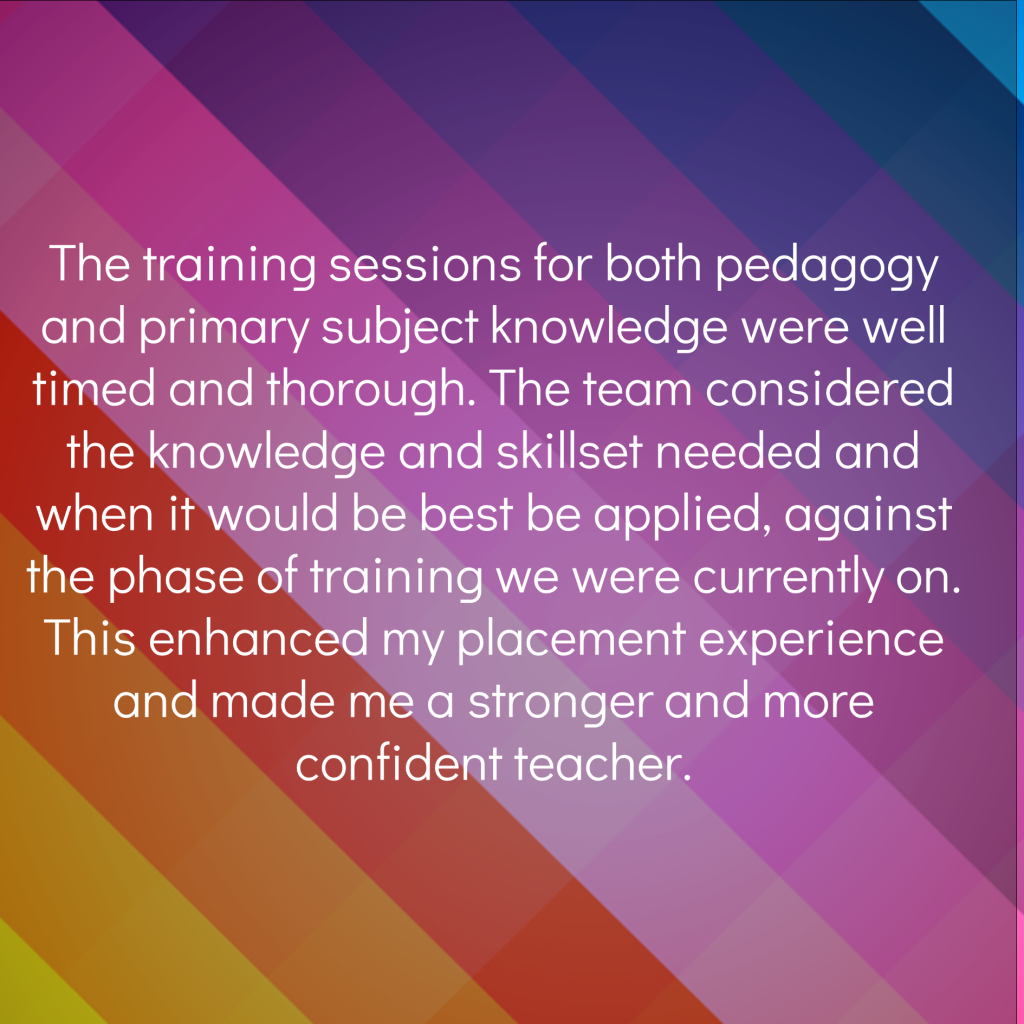

Every student teacher is allocated an ITT mentor - a member of staff at their placement setting, whose role is to support them in developing their pedagogy through modelled practice. The mentor will conduct weekly meetings with the student, to celebrate moments of success and identify further areas for development, against the benchmark expectations.
They will guide, assess and support the student from induction, through to triangulation - the final part of training where QTS is recommended, based on the students' performance and evidence collated throughout the training year.
Subject Knowledge Leads
We recognise that all student teachers will join the course at different starting points, which is why we provide a rigorous and and successful subject knowledge development strand to our ITT programme.
Utilising the expertise of our partnership, every student teacher will have access to subject knowledge development, via planned weekly sessions delivered at our SDatTurton training hub, by experts in the field.


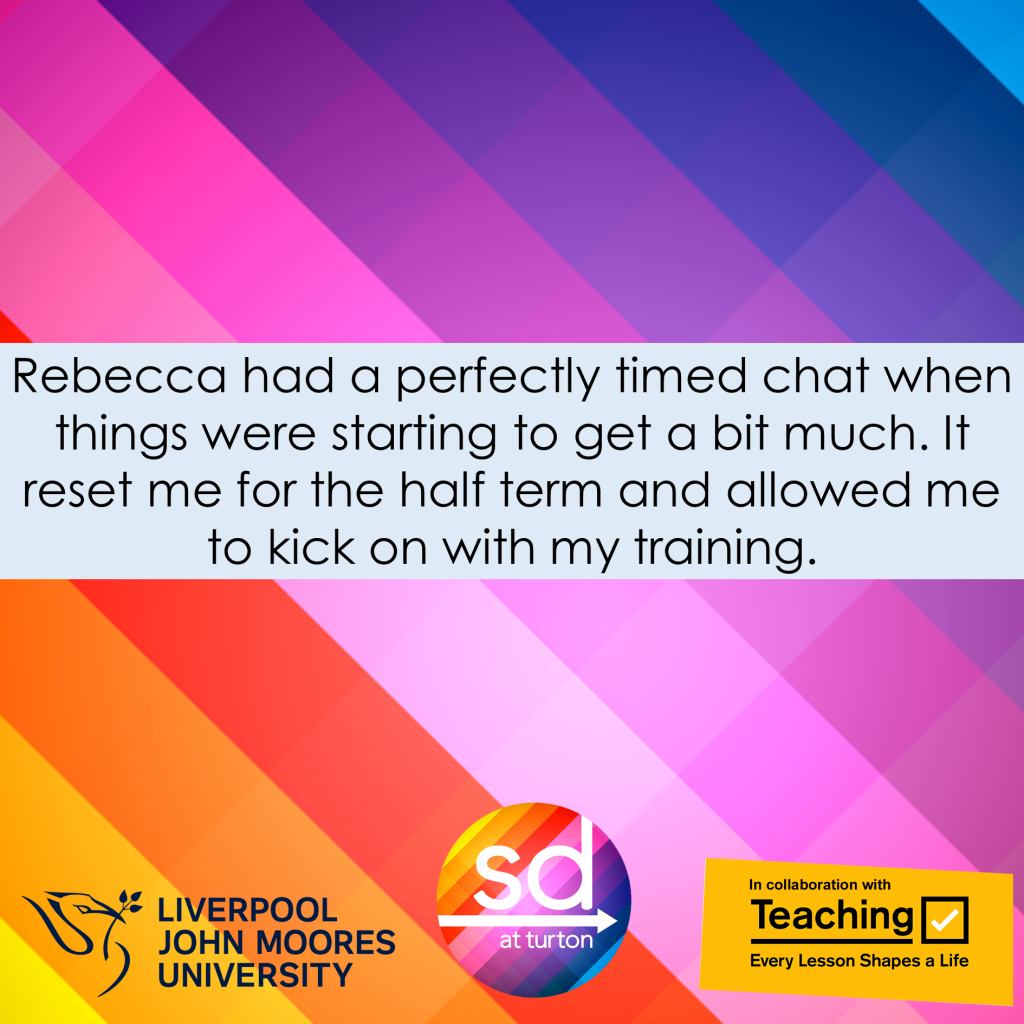
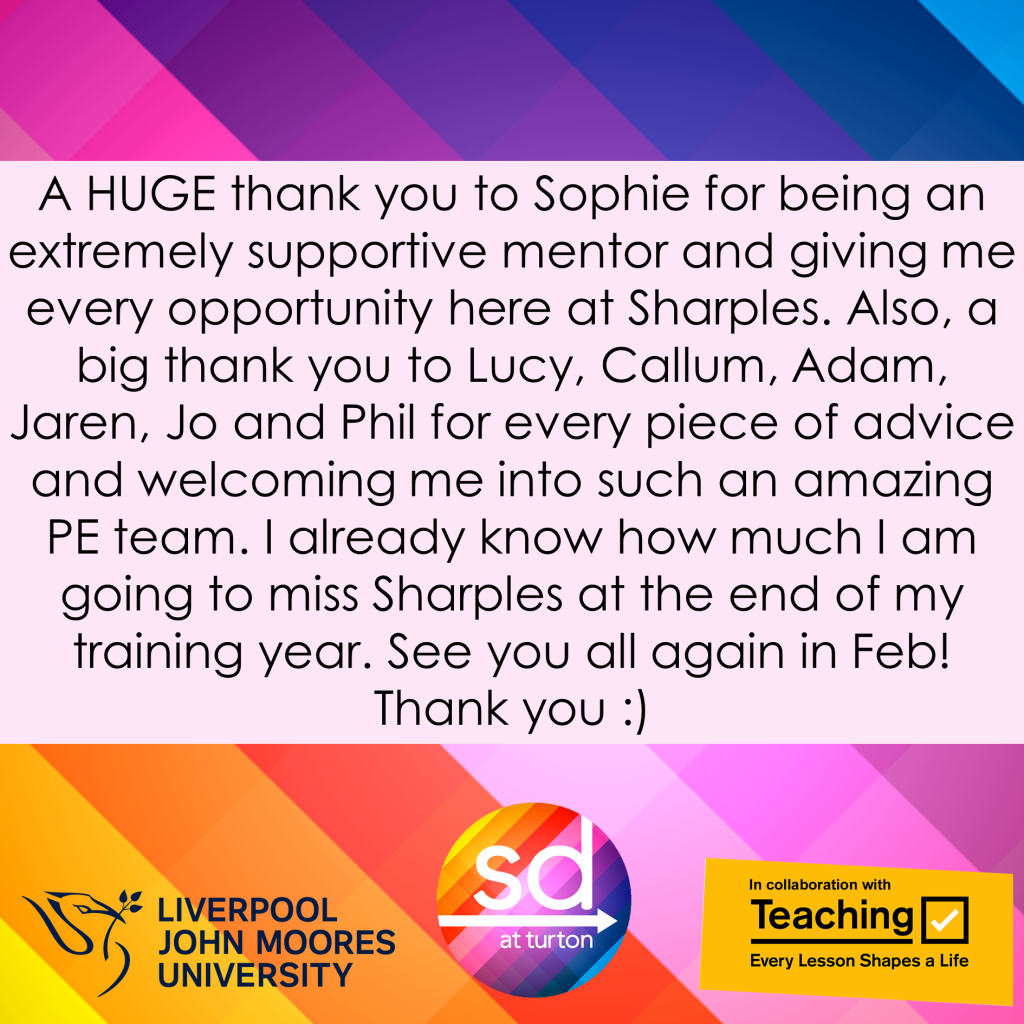
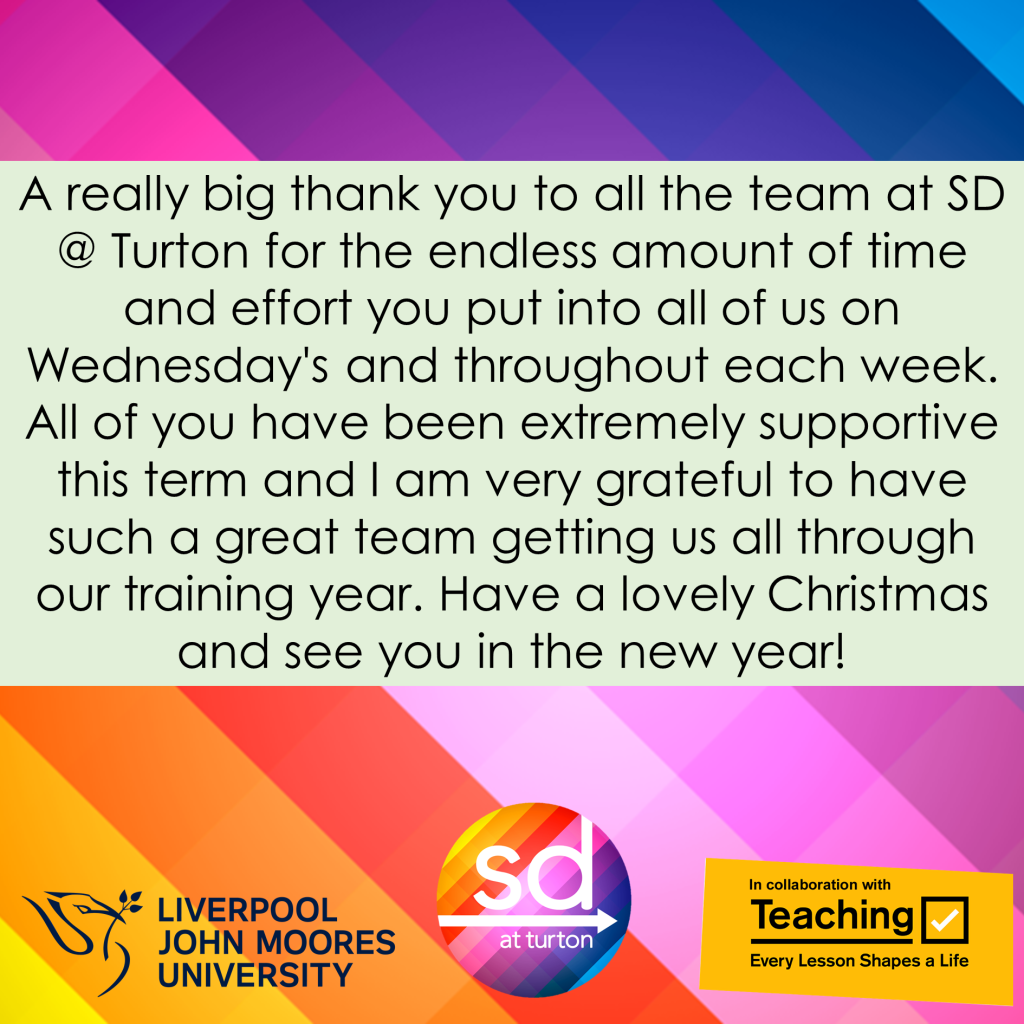


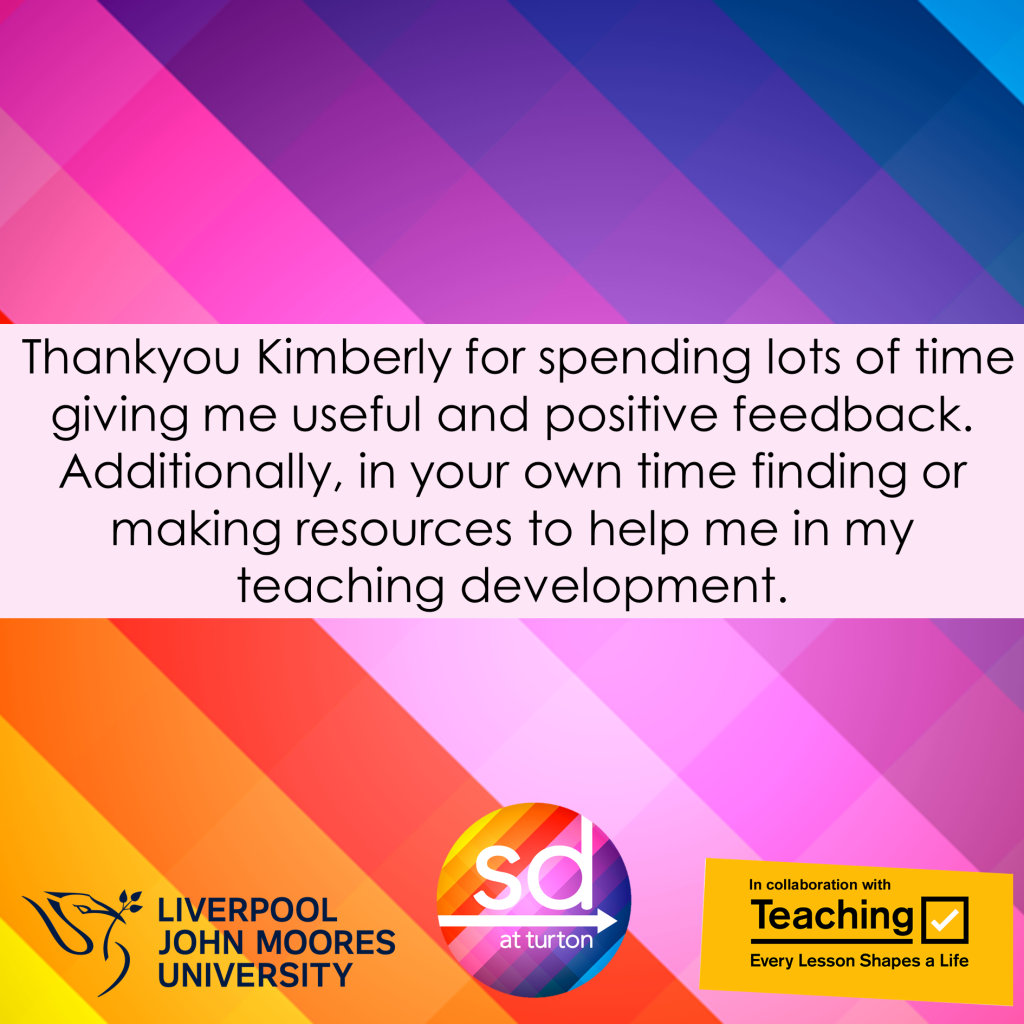


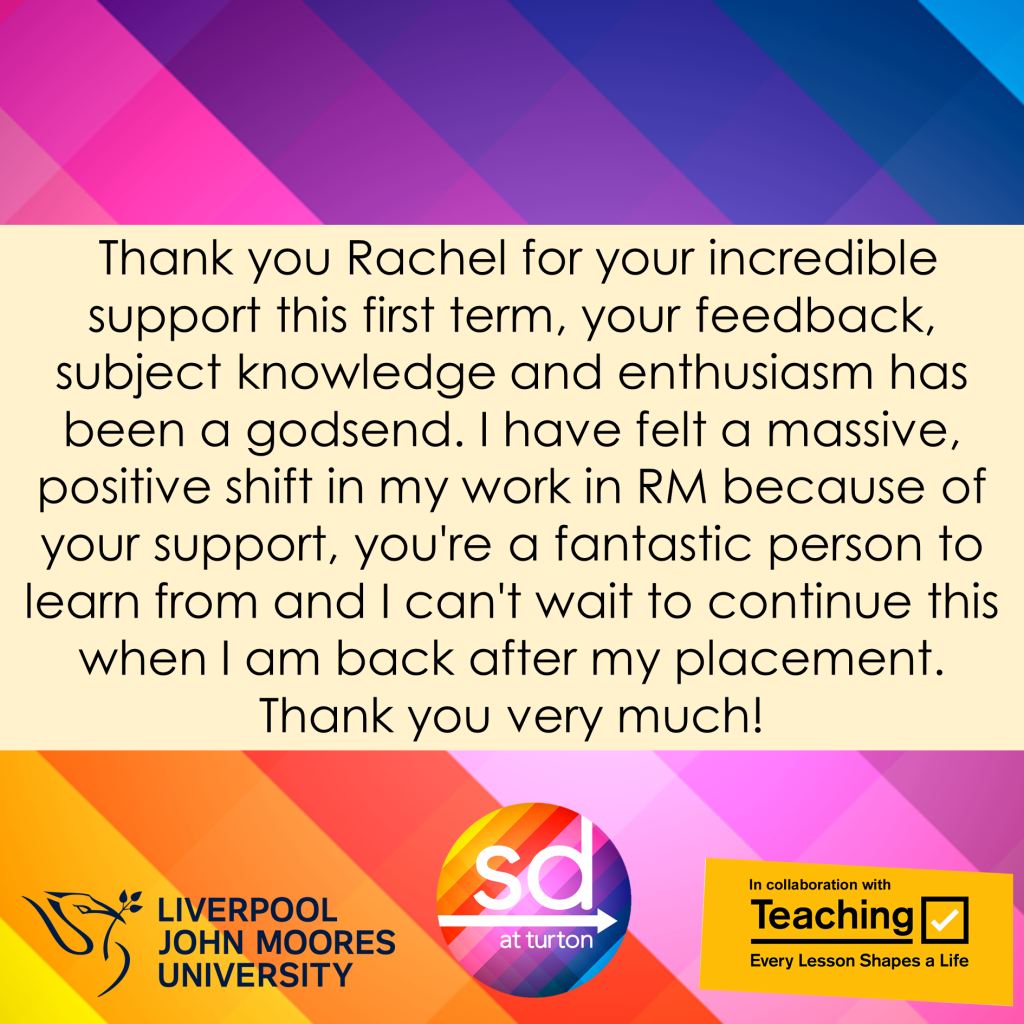



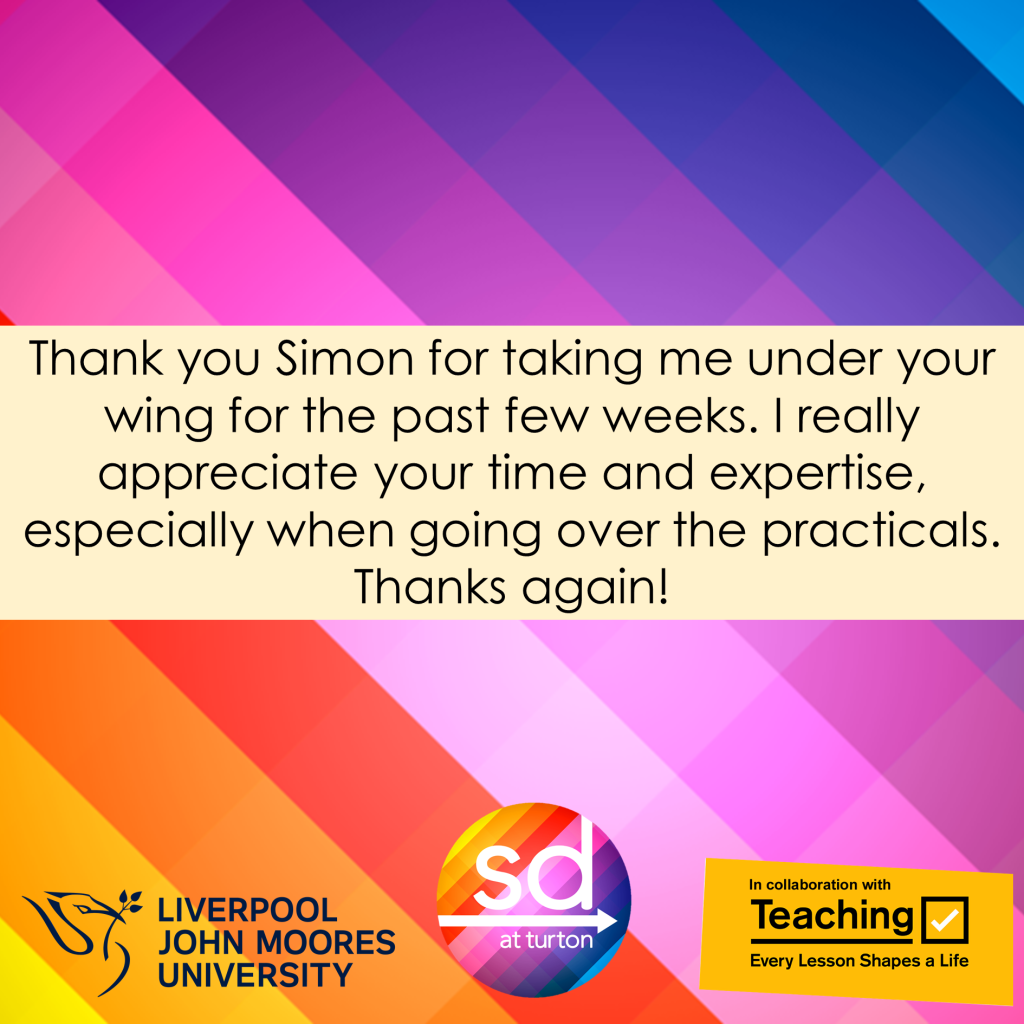
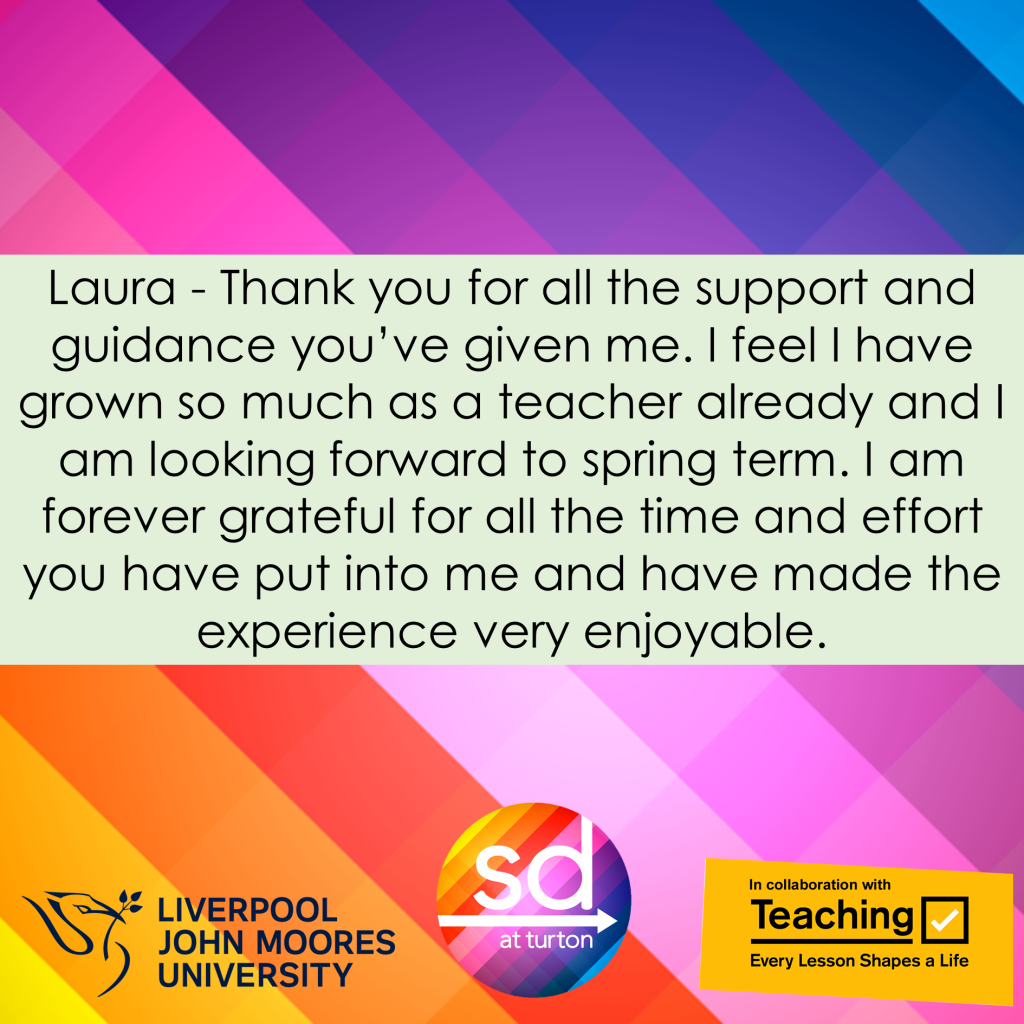
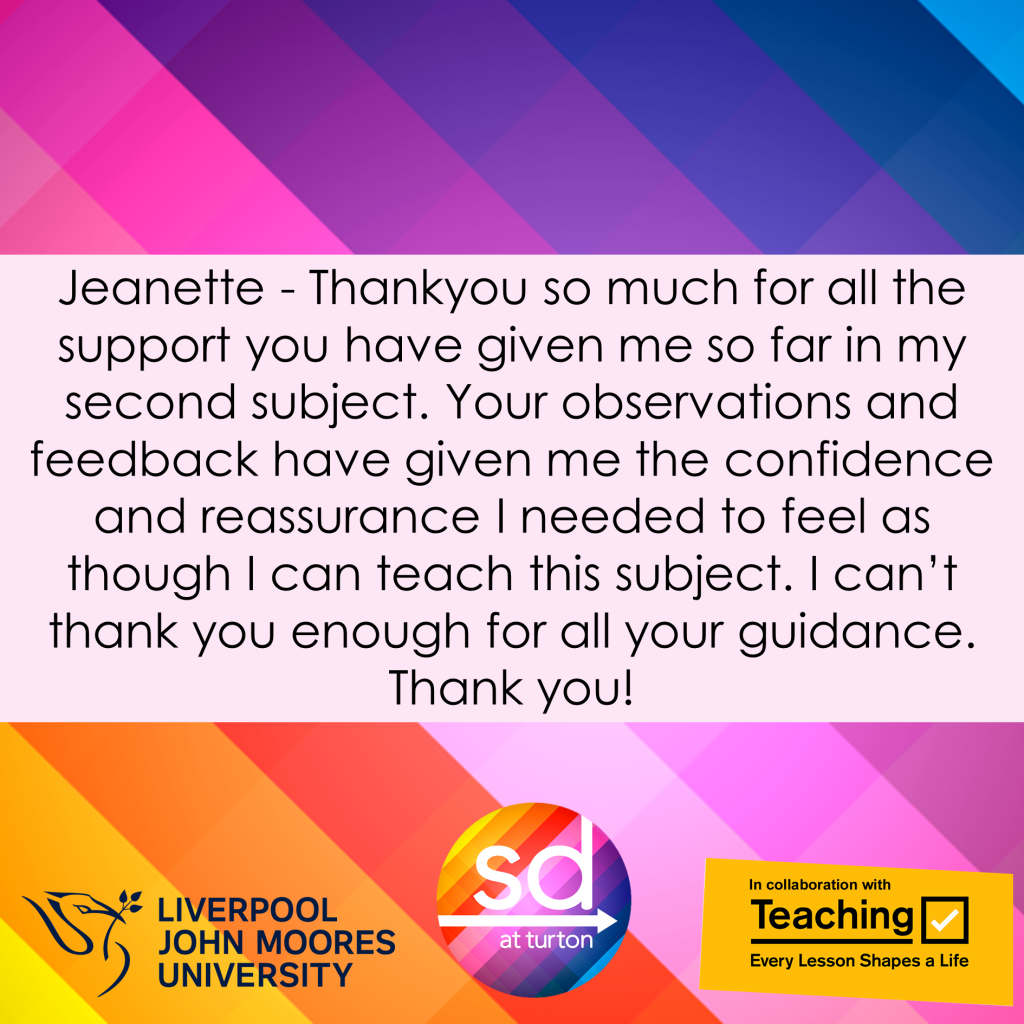
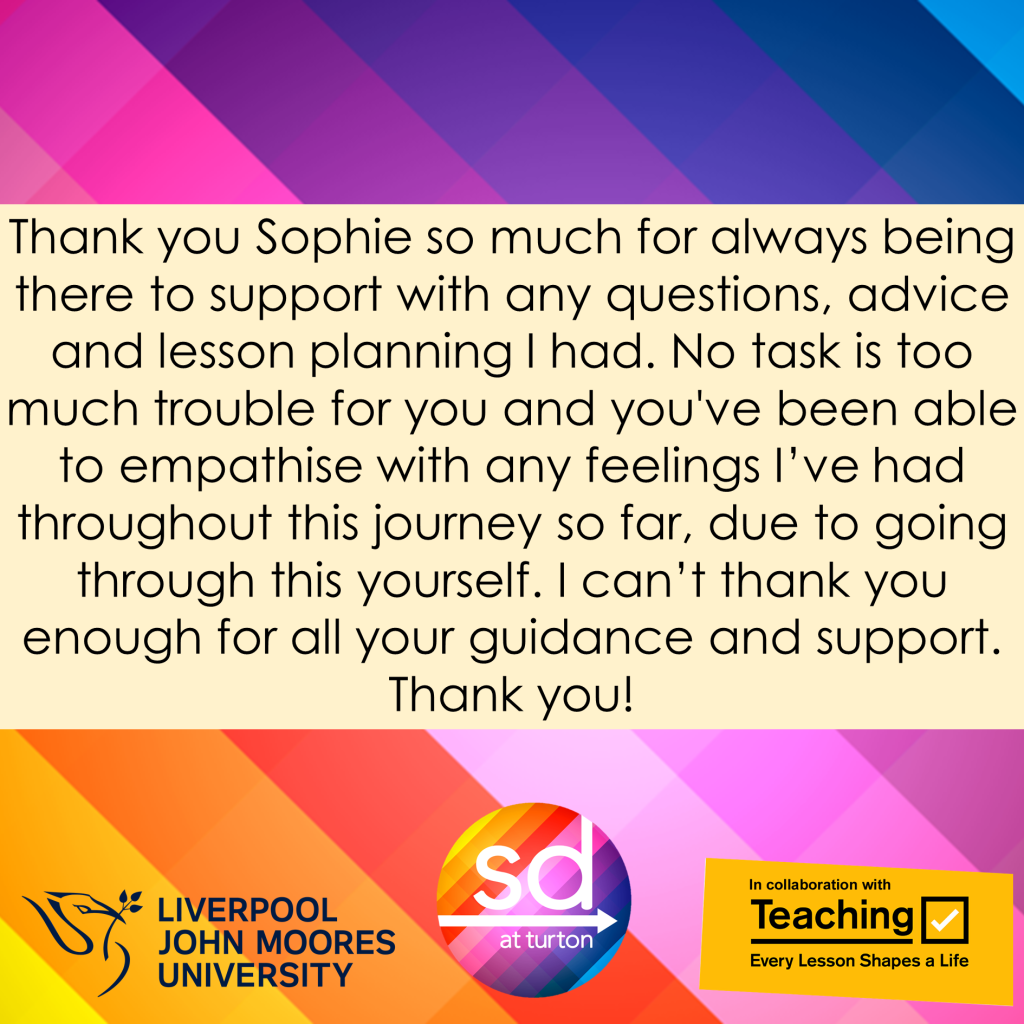




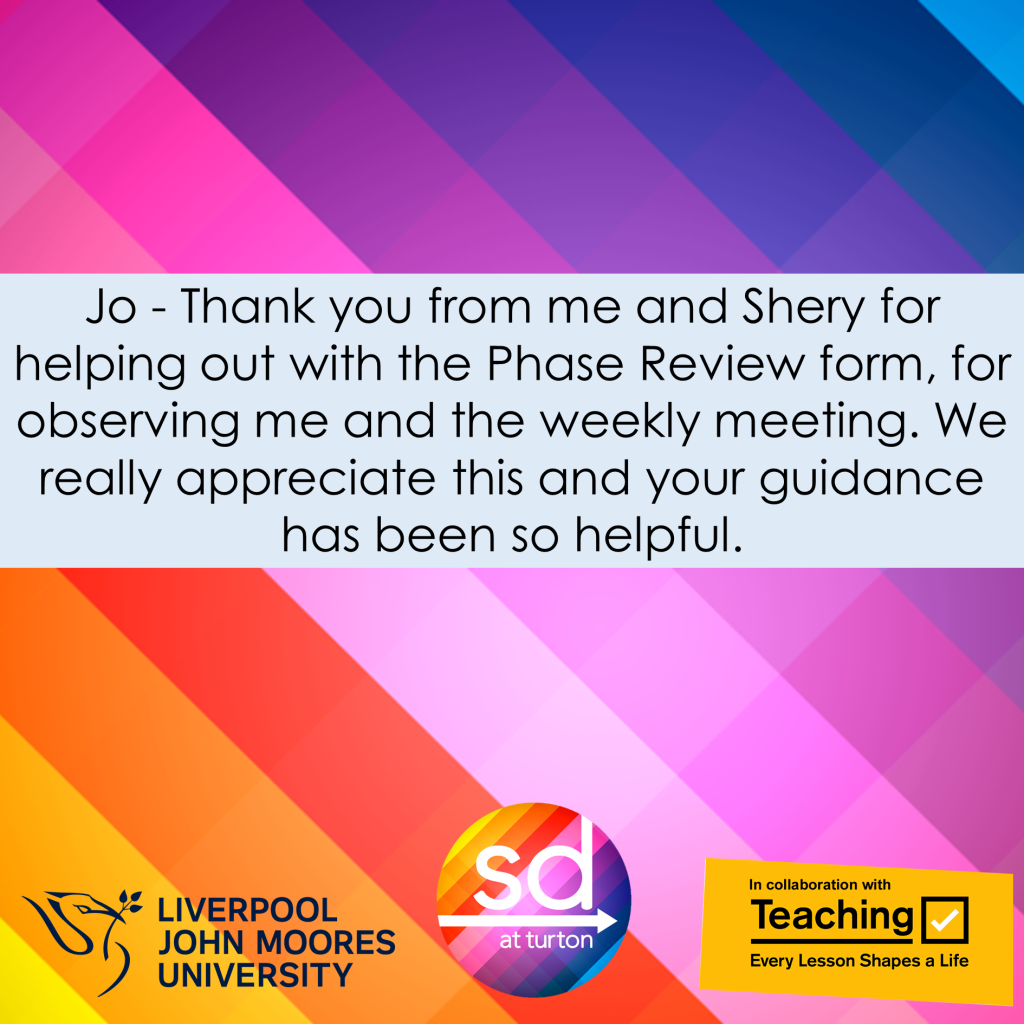
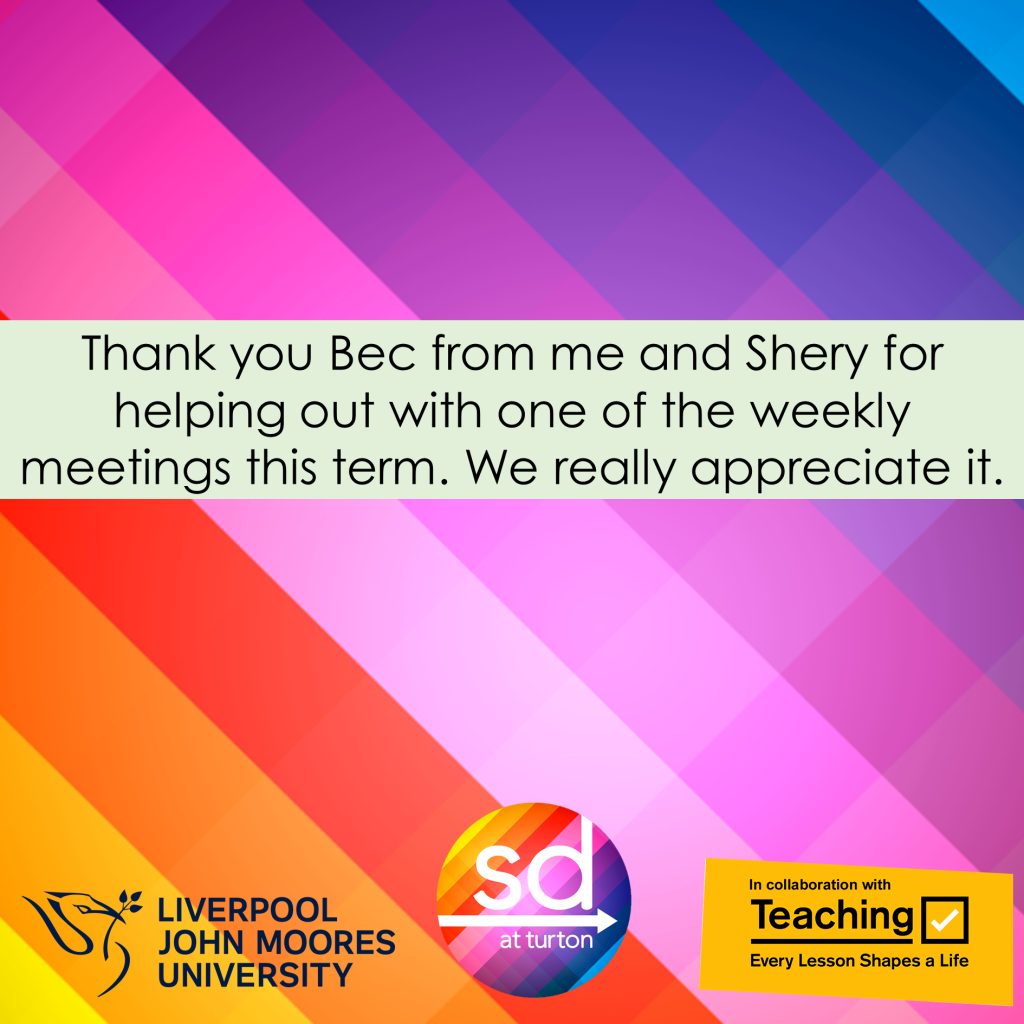
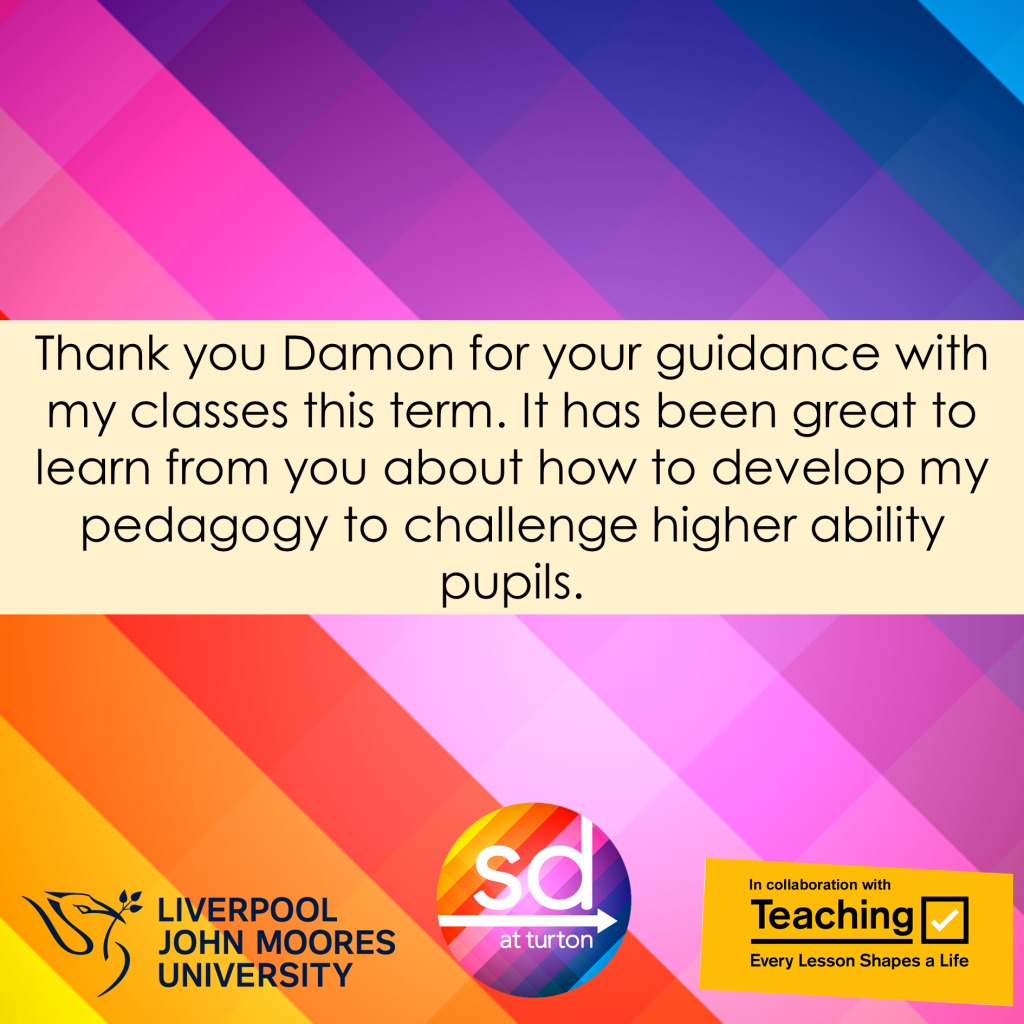
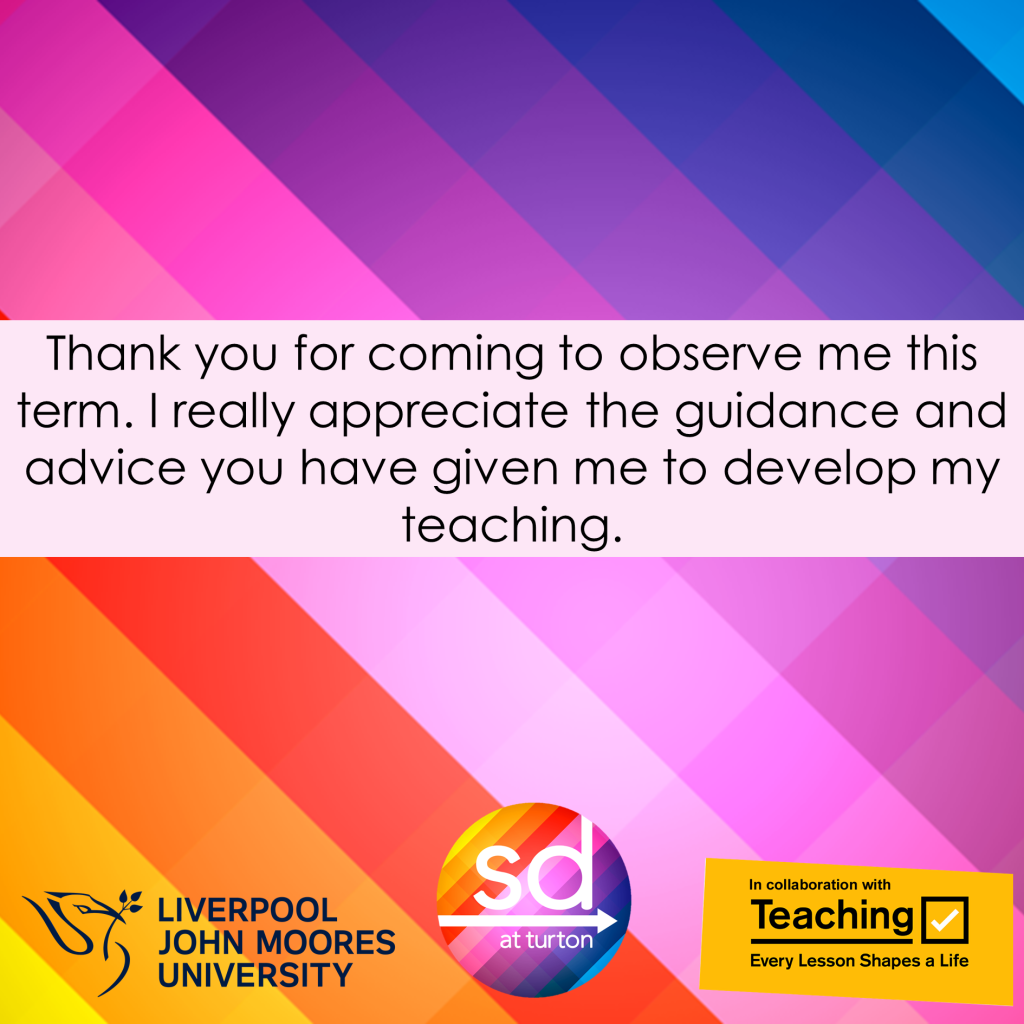

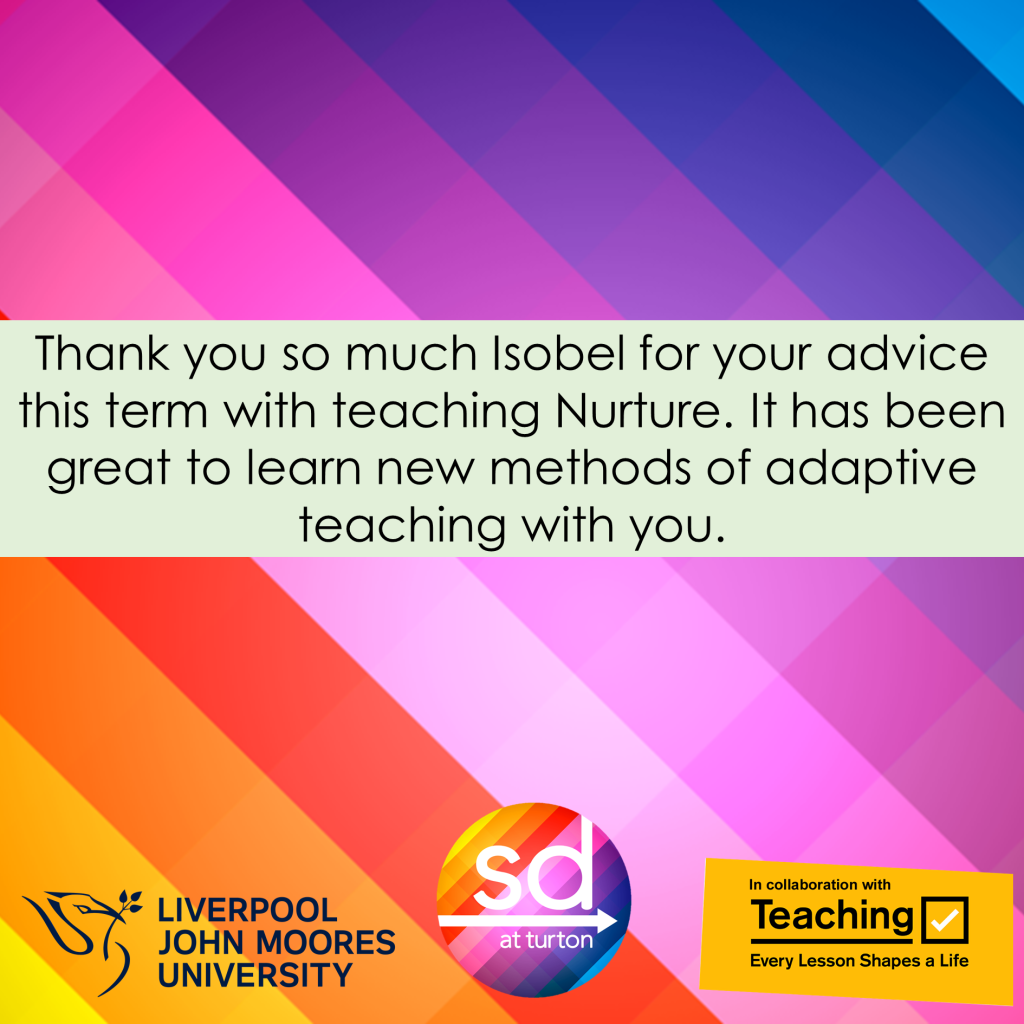
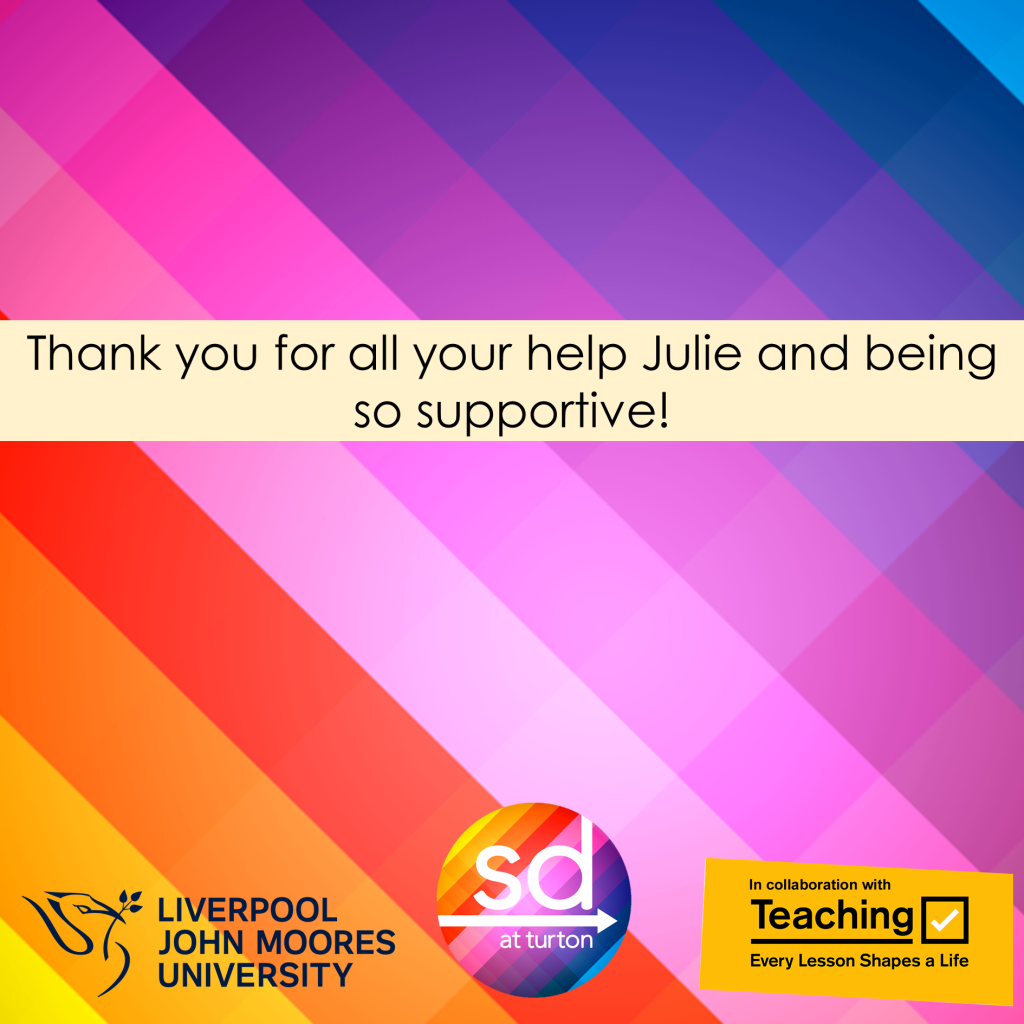
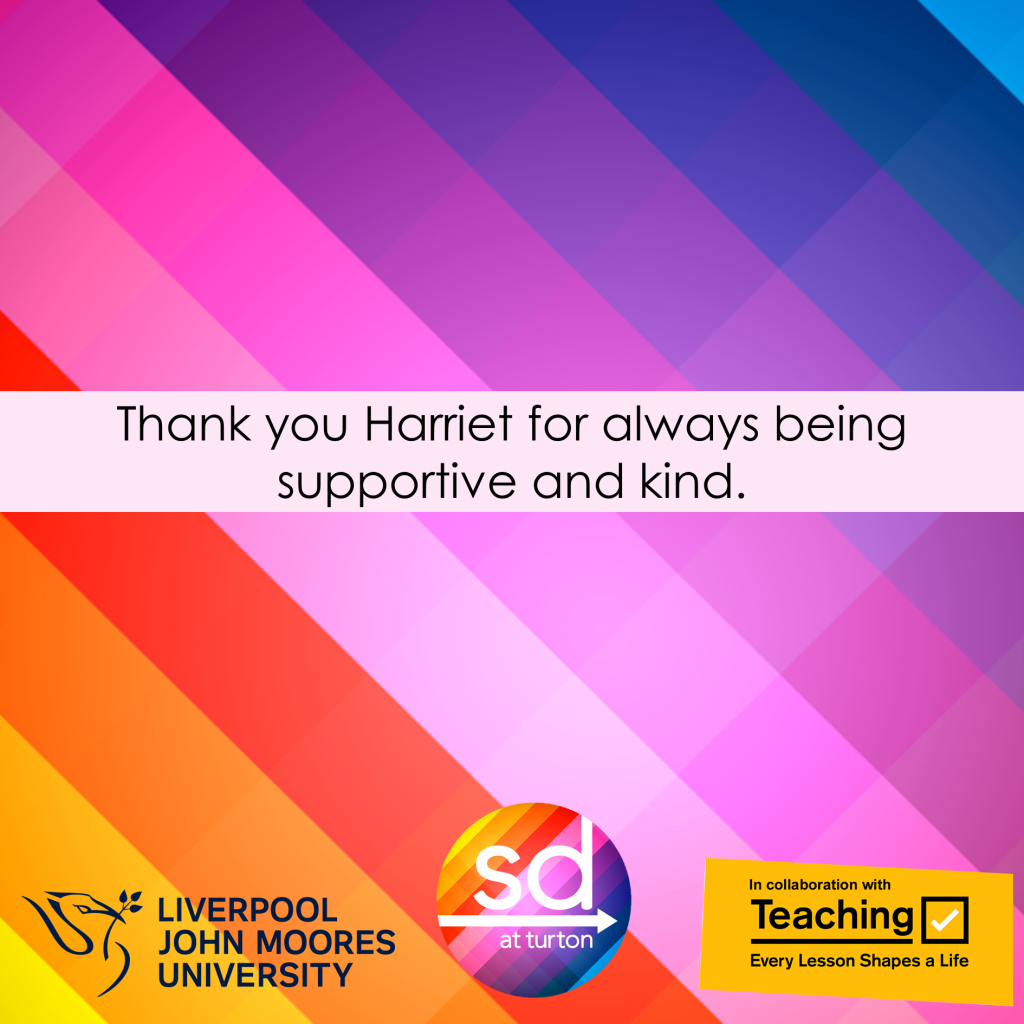
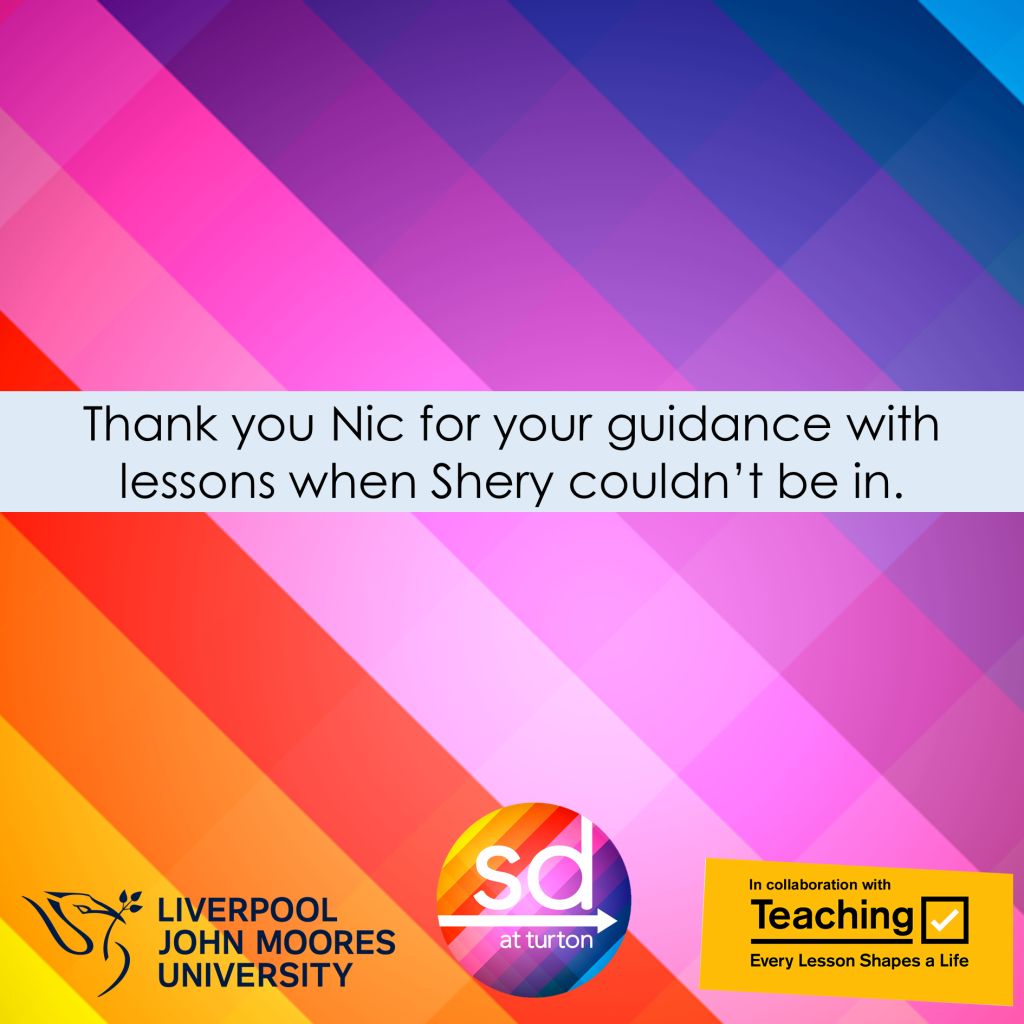
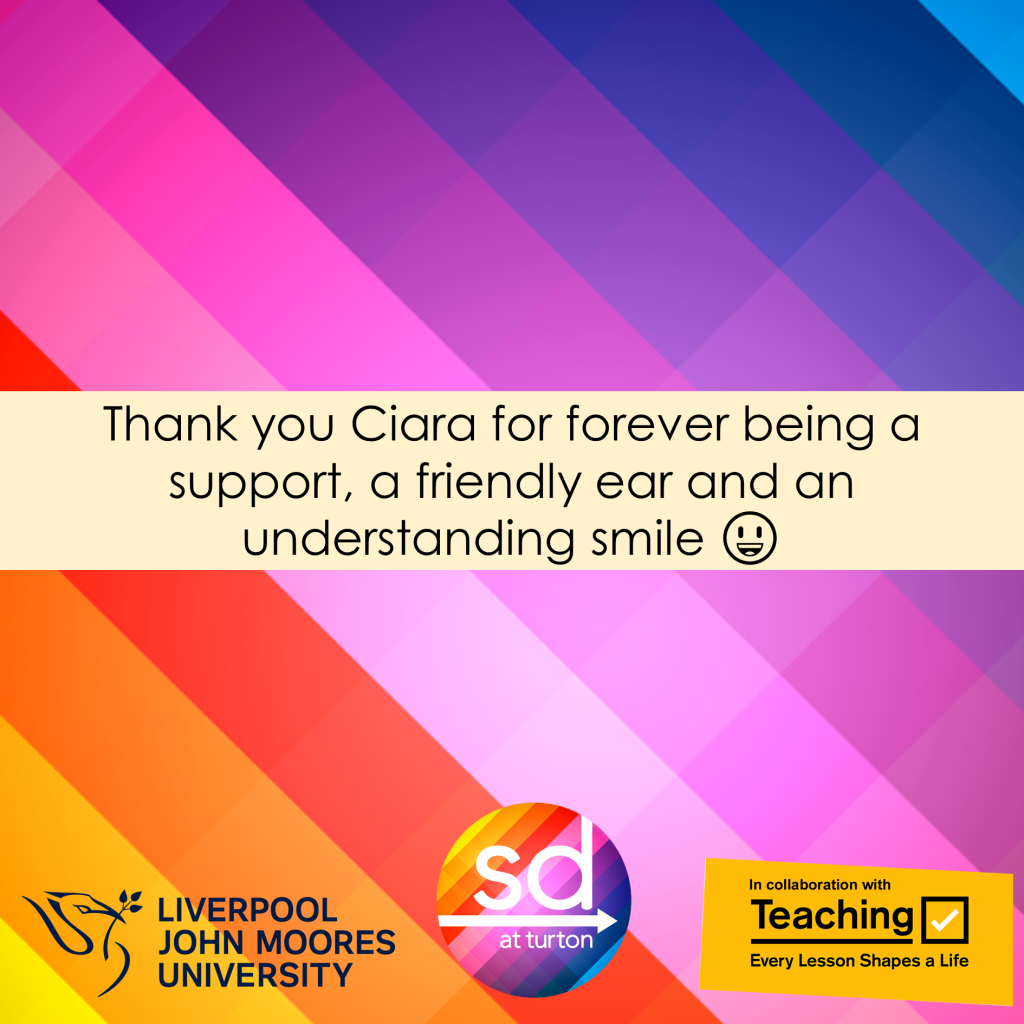
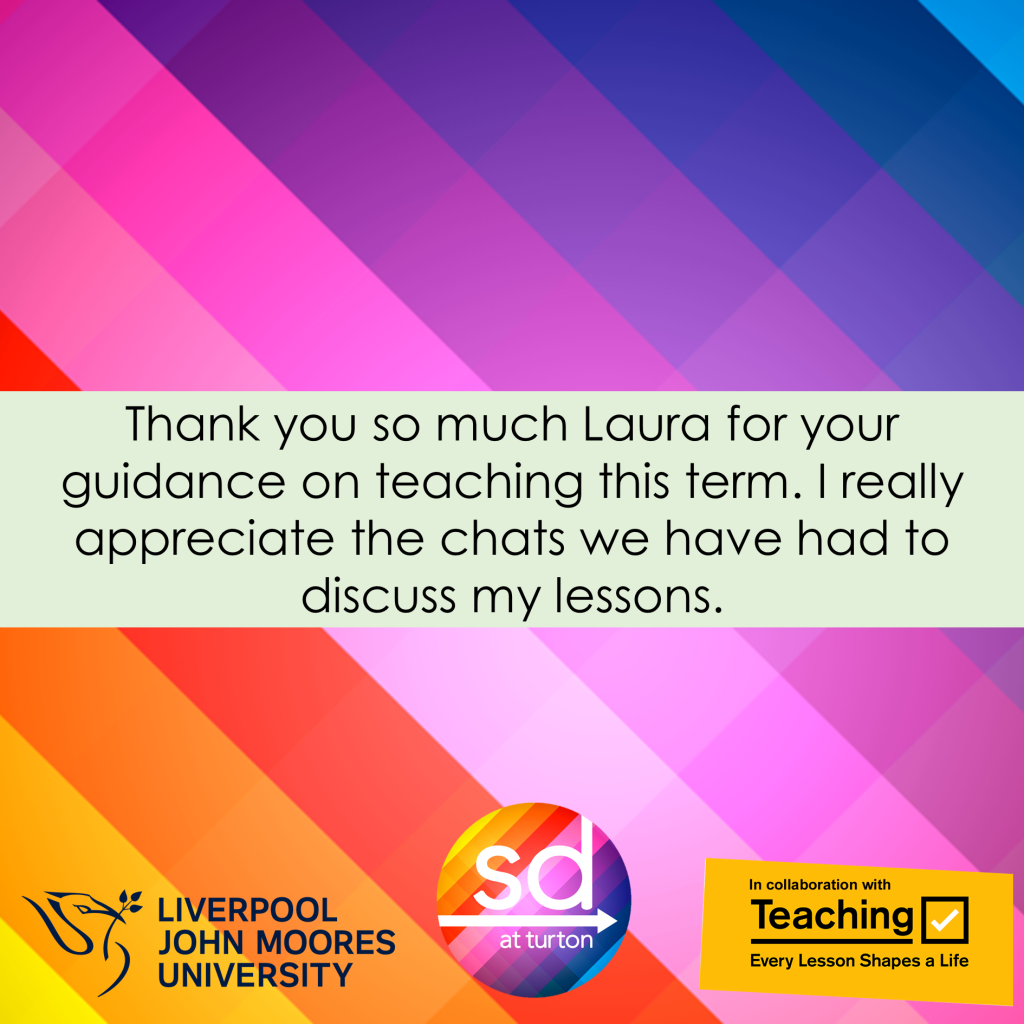
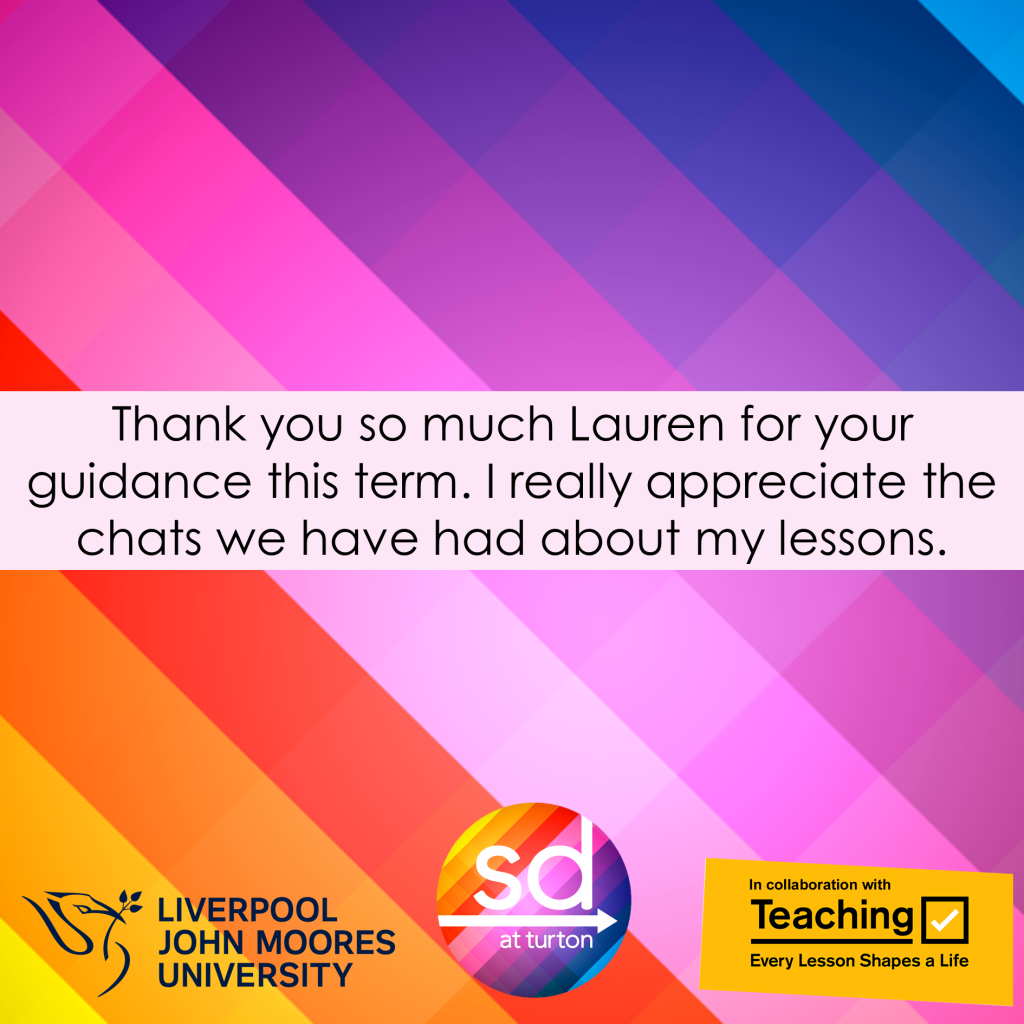
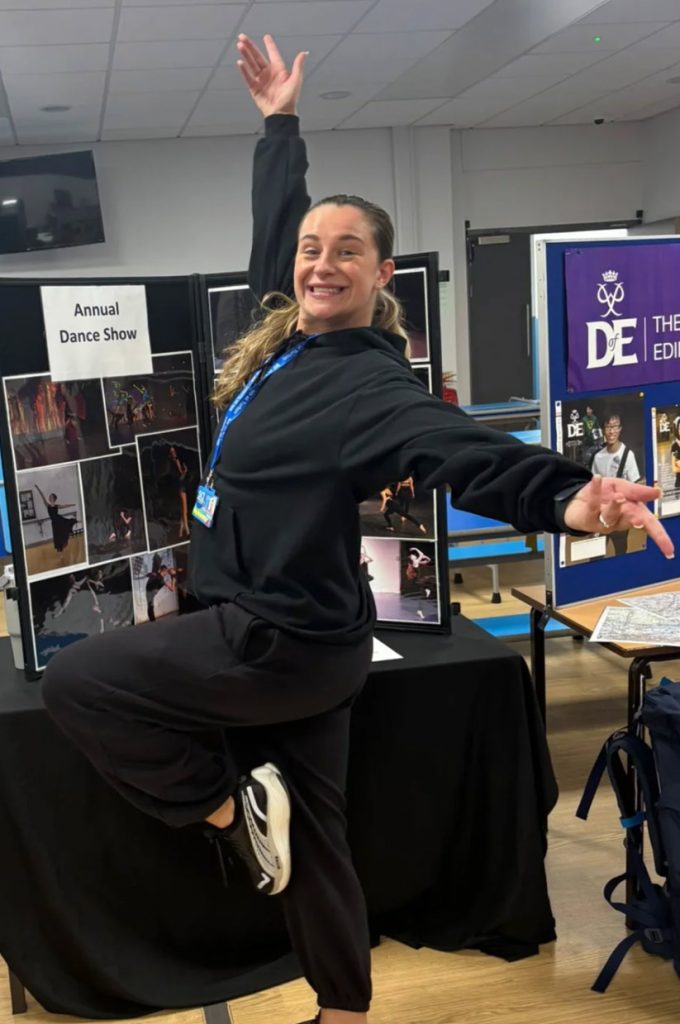
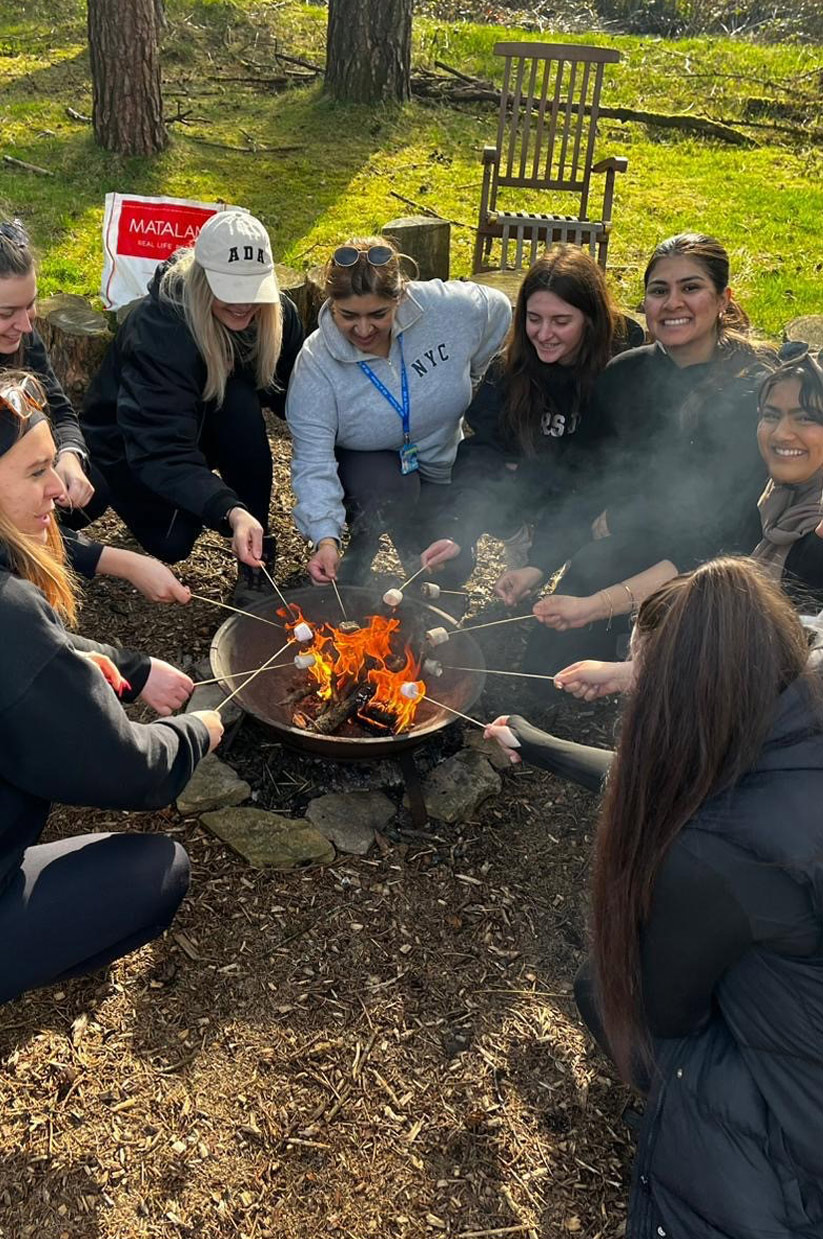
Ofsted, 2023.
We work wih a variety of parnership schools, in Bolton and across the North West, stretchingfrom Liverpool, up to Blackpool and across East and West Lancashire.
We have forged strong relationships with our these schools, with many of them recruiting student teachers from our programme. As well as hosting student teachers during their home and alternate placements, many of our partnerships will support the programme in sharing their areas of specialism and delivering bespoke sessions to students. From EAL, SEND, faith schools and sixth forms, we ensure all student teachers have access to as many educational settings as possible in their training year, to support in their development and increase their likelihood of employment.
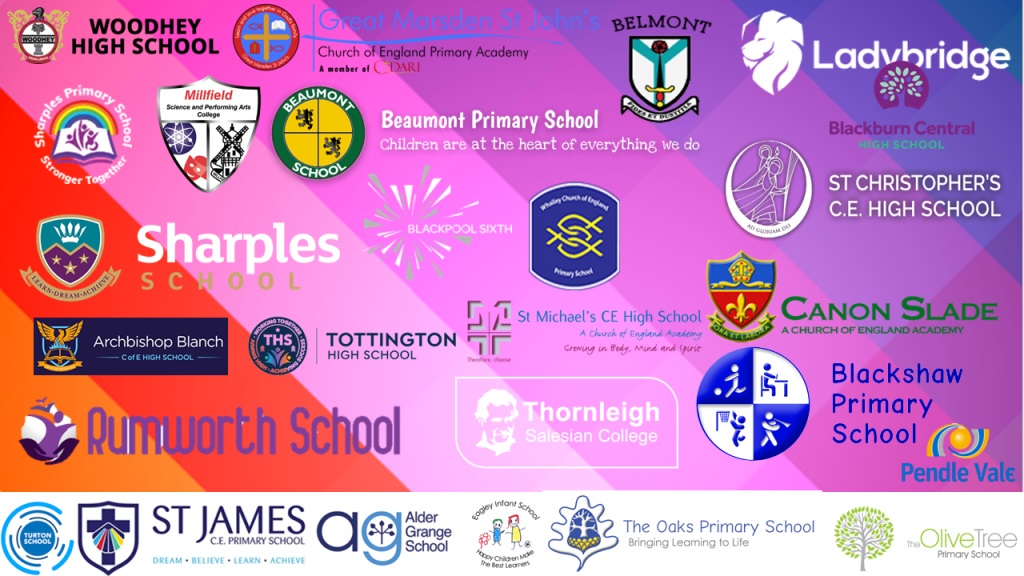
The Post Graduate Certificate in Education: Primary (Age 3-7 Years) (Code: 2Y6N) programme provides an intensive training experience, tightly focused on providing you with the skills, knowledge and attributes you will need when embarking on a teaching career. Based on training geared to meeting the Teaching Standards and Qualified Teacher Status, as a post graduate programme it also supports the development of a high degree of:
* Critical understanding of education theory and practice relevant to the subject area
* Reflective practice linked to professional development
* Practitioner research skills for effective teaching and learning
* Deep understanding and application of subject knowledge
Assessment:
Achievement of the Teaching Standards required for QTS is assessed through the development of a portfolio of evidence based on your experience and practice in schools, and an assessment of performance in practice during the programme.
The PGCE academic assignments have been designed to complement and support the professional development you are engaged in during the school based element of the training programme. They involve a number of short written components; investigations and evaluations of school-based teaching and learning and presentations. All are designed to support you in linking student’s practical experience with your engagement and reflection on research in order to have a positive impact on student’s classroom practice and your pupils’ learning.
Support:
In school, the expertise of your Initial Teacher Training Mentor and Professional Mentor will enable you to make excellent progress through regular feedback. The department and school you work in will support you, both in terms of developing your pedagogic skills and any challenges you may face. At university, the highly qualified and respected academic team combines specialist knowledge and creative research with hands-on teaching experience. This combination of academic and professional expertise from school and university helps ensure that you are well equipped to meet the opportunities available to today’s teaching professionals.
Tutorial support at university is an important part of the process and you will receive a personalised service that will enable you to set targets and fulfill your potential.
Enrichment:
Trainees are expected to engage with a variety of enrichment experiences that challenge and extend their repertoire of skills and enhance employment potential. Such activities may include supporting learners in community based education projects and a variety of schools in our partnership.
The Post Graduate Certificate in Education: Primary (Age 5-11 Years) (Code: 2XMB) programme provides an intensive training experience, tightly focussed on providing you with the skills, knowledge and attributes you will need when embarking on a teaching career. Based on training geared to meeting the Teaching Standards and Qualified Teacher Status, as a post graduate programme it also supports the development of a high degree of:
* Critical understanding of education theory and practice relevant to the subject area
* Reflective practice linked to professional development
* Practitioner research skills for effective teaching and learning
* Deep understanding and application of subject knowledge
Assessment:
Achievement of the Teaching Standards required for QTS is assessed through the development of a portfolio of evidence based on your experience and practice in schools, and an assessment of performance in practice during the programme.
The PGCE academic assignments have been designed to complement and support the professional development you are engaged in during the school based element of the training programme. They involve a number of short written components; investigations and evaluations of school-based teaching and learning and presentations. All are designed to support you in linking student’s practical experience with your engagement and reflection on research in order to have a positive impact on student’s classroom practice and your pupils’ learning.
Support:
In school, the expertise of your Initial Teacher Training Mentor and Professional Mentor will enable you to make excellent progress through regular feedback. The department and school you work in will support you, both in terms of developing your pedagogic skills and any challenges you may face. At university, the highly qualified and respected academic team combines specialist knowledge and creative research with hands-on teaching experience. This combination of academic and professional expertise from school and university helps ensure that you are well equipped to meet the opportunities available to today’s teaching professionals.
Tutorial support at university is an important part of the process and you will receive a personalised service that will enable you to set targets and fulfill your potential.
Enrichment:
Trainees are expected to engage with a variety of enrichment experiences that challenge and extend their repertoire of skills and enhance employment potential. Such activities may include supporting learners in community based education projects and a variety of schools in our partnership.
The Post Graduate Certificate in Education for secondary based subjects provides an intensive training experience, tightly focussed on providing you with the skills, knowledge and attributes you will need when embarking on a teaching career. Based on training geared to meeting the Teaching Standards and Qualified Teacher Status, as a post graduate programme it also supports the development of a high degree of:
* Critical understanding of education theory and practice relevant to the subject area
* Reflective practice linked to professional development
* Practitioner research skills for effective teaching and learning
* Deep understanding and application of subject knowledge
Assessment:
Achievement of the Teaching Standards required for QTS is assessed through the development of a portfolio of evidence based on your experience and practice in schools, and an assessment of performance in practice during the programme.
The PGCE academic assignments have been designed to complement and support the professional development you are engaged in during the school based element of the training programme. They involve a number of short written components; investigations and evaluations of school-based teaching and learning and presentations. All are designed to support you in linking student’s practical experience with your engagement and reflection on research in order to have a positive impact on student’s classroom practice and your pupils’ learning.
Support:
In school, the expertise of your Initial Teacher Training Mentor and Professional Mentor will enable you to make excellent progress through regular feedback. The department and school you work in will support you, both in terms of developing your pedagogic skills and any challenges you may face. At university, the highly qualified and respected academic team combines specialist knowledge and creative research with hands-on teaching experience. This combination of academic and professional expertise from school and university helps ensure that you are well equipped to meet the opportunities available to today’s teaching professionals.
Tutorial support at university is an important part of the process and you will receive a personalised service that will enable you to set targets and fulfill your potential.
Enrichment:
Trainees are expected to engage with a variety of enrichment experiences that challenge and extend their repertoire of skills and enhance employment potential. Such activities may include supporting learners in community based education projects and a variety of schools in our partnership.
We are currently accepting applications for the following subjects:
Art and Design (2Y6M)
Biology (2Y6L)
Chemistry (2y6K)
Computing (2Y6J)
Dance (2Y6H)
Design and Technology (2Y6G)
Drama (2Y6F)
English (2Y6D)
Geography (2Y6C)
History (2Y6B)
Mathematics (2Y69)
Modern Foreign Languages (2Y67)
Music (2Y66)
Physical Education (2Y5X)
Physics (2Y64)
Religious Education (2Y5Z)
Our programme differs from other, more traditional teacher training routes in that you are placed in a home school for the majority of your training. We discuss home school placements when you have accepted any offer we might make.
There is a university-based, week long induction at the start of September.
Your school-based experience takes place largely in a Home School, supported by teachers invested in teacher education. We have found that being in a Home School ensures that you are fully integrated into school life and get to know staff, pupils and your ITT Mentor extremely well, to the benefit of all involved. A member of LJMU staff is attached to each school and is responsible for visiting regularly in order to support you and your mentor.
All trainees are entitled to weekly review and feedback meetings with their mentors and to tutorials with LJMU staff, ensuring that you are supported from start to finish, personally and professionally.
A 6 week placement will be undertaken in January in a complementary setting. The most striking difference is the university involvement. Liverpool John Moores University deliver the academic programme on site, at Turton School.
School based training involves the preparation and delivery of learning sequences and lessons to small groups and whole classes of learners, with expectations and workload increasing during the course. This work is supported by your Initial Teacher Training Mentor who will support your professional learning experience in school.
The course is delivered through a variety of teaching methods including lectures, seminars, interactive workshops, group discussion and reflection, problem solving and micro-teaching. We also make full use of the University’s Virtual Learning Environment.
This programme is tightly focussed on providing you with the skills and knowledge required. Your Personal Tutor will meet with you to monitor progress, provide guidance and advice and set targets for your development.
Your ITT Mentor will organise and supervise your school-based training and will in turn be supported by an LJMU Tutor who will visit school several times during the year to support you.
You should have or expect to achieve an Undergraduate degree (or recognised equivalent) in your subject specialism or related discipline normally with significant content in your chosen subject area. The degree classification should be at 2:2 or above.*
*PE – 2:1 degree classification
*Physics – 3rd degree classification
GCSE English Language or Literature and Mathematics at grade C/4 or above (or equivalent qualification)
For Primary applications, GCSE Science at grade C/4 or above is also required.
Please note: original evidence of GCSE passes (or equivalent) and your degree (if you have already graduated) will be requested at interview. Level 2 numeracy and literacy qualifications are not considered as equivalent . If you have non-standard qualifications please check their suitability with ecl-recruit@ljmu.ac.uk
1. Check your eligibility
Before you apply for teacher training you’ll need to make sure you’re eligible. Although different training providers may have specific recruitment criteria, there are some basic eligibility requirements you’ll need to meet to become a teacher in England. Check your eligibility.
2. Get personalised guidance to your inbox
Get one step closer to the classroom with guidance tailored to you, including how to get:
- a taste of teaching
- funding to train
- one-to-one support
- advice from trainees or newly qualified teachers
3. Get a Teacher Training Adviser
An experienced teaching professional can help if you’re ready to get into teaching or if you’re returning to teaching and qualified to teach maths, physics or languages.
4. Research training courses
From 7th October 2025, search for training courses by using the Department for Education’s Find postgraduate teacher training service(Link opens in new window). You can search by location, training provider and subject to find the course best suited to you.
Alternately, visit the Get into Teaching events page, here.
5. Reflect on (or get some) school experience
Demonstrating how any voluntary time you have spent in school has shaped your view of teaching is vital to a good application. If you haven’t managed to get some time in a school yet, some schools are offering the opportunity for candidates to undertake school experience both in school and virtually. You can search for schools and apply using our Get School Experience(Link opens in new window) service.
6. Start lining up your references
You’ll need a couple of referees to provide references for your application. Now is a good time to start approaching people who might be able to provide these for you. Getting references in place is one of the most common causes of delay in the application process, so any preparation you can do now could speed things up considerably when you make your application. One of your references must be from an academic tutor who worked with you at University.
7. Engage with the world of schools and teaching
Something that many teacher trainer providers will be looking for in an application or interview is an understanding of current issues and thinking in teaching. It’s worth following other teachers and education media outlets like Schools Week(Link opens in new window) and TES
(Link opens in new window) on social media. Teachers are very active on Twitter and share lots of helpful insights, tips and resources. You will soon find your own favourites, but we’d suggest looking at ITTchat
(Link opens in new window) or Teacher Toolkit
(Link opens in new window) to get started.
8. Get some advice at an event
Our Train to Teach events will provide you with a wealth of information and help you turn questions to confidence on your journey to the classroom. At some of our Train to Teach events you can meet a whole range of local training providers; at others you’ll have the chance to put your questions to a panel of experts. Some events are in person and others replicate the experience online. Book your place.
9. Join our support networks on social media
Our Facebook groups for aspiring teachers(Link opens in new window) and people thinking of a career change to teaching
(Link opens in new window) offer a really friendly, supportive place to connect with other people applying for teacher training and ask any questions you might have. Our Teacher Training Advisers are also on hand to give expert advice.
All interviews will take place at one of the schools in our partnership, with a member of the School Direct at Turton strategic team.
During the interview, there will be:
- an introductory meeting with a member of the School Direct at Turton training team and where possible, lead of the programme.
- a teaching task, prepared in advance and delivered on the day of your interview.
- a panel interview designed to identify your suitability and commitment to teaching. The interview will be conducted by two members of the Initial Teacher Education team and will explore your experiences and provide you the best opportunity to demonstrate you knowledge, understanding and desire to become a teacher.
- subject knowledge assessment (PGCE Secondary only)
- subject knowledge assessment (literacy and numeracy focus PGCE Primary only).
- identity and qualification checks. You will be expected to provide: Photo ID (passport or driving license), GCSE Certificates or equivalent (including English Language or Literature & Maths at grade C / 4 or above and for Primary – Science grade C/4 or above) and Degree level certificate where appropriate.
Have you done your research?
No two teacher training interviews will be the same, so you need to be able to tailor your approach. Make sure you do your research about the school(s) or university that will be leading your training. If successful, you’ll be with them for a year (and possibly longer if one of your placements leads to employment).
When you receive an invitation for an interview, read it very carefully so you know exactly what to expect. Most invitations will contain a series of tasks for you to complete ahead of the interview:
- a review of personal documentation including examination certificates
- a planned lesson – the topic will be given to you prior to the day of the interview
- an individual interview, which could be one-to-one or with a panel
- a written task, or tasks, which could involve a literacy test and/or subject-based test
So you’ll need to make sure you’re prepared for every eventuality to improve your chances of making a great impression.
What qualities do you bring to teaching?
You’ll need to be sure you can provide compelling reasons for why you have all the right qualities for teaching. These include two specific areas for you to think about:
1. Why do you want to be a teacher?
2. Why are you suited to teach your subject and age groups?
In addition, think carefully about your
- commitment and reasons for wanting to get into teaching and an understanding of how you can make a difference as a teacher
- awareness of what you can bring to the course you’re applying for – both in terms of your subject knowledge and the ethos of the school(s) or university leading your training
- ability to explain what you’ve learnt from your school experience
- application of transferable skills from any previous employment to teaching
- understanding of current policies and practices in education and teaching in general
You may have already given a lot of thought to these areas when crafting your written application. That’s a good start, but don’t be complacent and hope reciting that will carry you through.
And, as with any interview, you’ll be expected to demonstrate good personal, intellectual and communication skills – in fact, as a prospective teacher, these are vital skills.
Postgraduate teaching bursaries and scholarships are only available for the subjects listed below. You cannot receive both a teaching bursary and a scholarship.
You must be eligible for student finance to receive a bursary or scholarship (unless you’re training to teach physics or languages).
You cannot receive a scholarship or bursary if you’re on a salaried teacher training course.
| Subject | Bursary | Scholarship |
|---|---|---|
| Art and design | £10,000 | |
| Biology | £25,000 | |
| Chemistry | £28,000 | £30,000 |
| Computing | £28,000 | £30,000 |
| Design and technology | £25,000 | |
| English | £10,000 | |
| Geography | £25,000 | |
| Languages (French, German and Spanish only) | £25,000 | £27,000 |
| Languages (all other languages, including ancient languages) | £25,000 | |
| Maths | £28,000 | £30,000 |
| Music | £10,000 | |
| Physics | £28,000 | £30,000 |
| Religious education | £10,000 |
Bursaries
You do not need to apply for a bursary. If you’re eligible, you’ll automatically receive it.
To be eligible for a bursary, you’ll need at least one of the following:
- a bachelor’s degree class 2:2 (honours) or higher
- a master’s degree
- a PhD
If your course combines 2 subjects (for example, English and history), at least 50% of your course content must be made up of the bursary subject to be eligible.
You’ll also need to meet the bursary scheme’s individual terms and conditions.
Find out more about your eligibility for teaching bursaries(opens in new window).
Postgraduate bursaries and
scholarships
Funding: initial teacher training (ITT), academic year 2026
to 2027 – GOV.UK
Bursaries
and scholarships are available to trainees on tuition-fee-based teacher
training courses in England that lead to the award of qualified teacher status (QTS).
Receiving
a bursary or scholarship depends on the trainee’s:
·
highest relevant academic award
·
ITT subject
In
languages and physics, trainees starting courses in the 2026 to 2027 academic
year will not need to be eligible for student finance to be eligible for a
bursary or scholarship.
In
all other subjects, trainees are only eligible for a bursary or scholarship if
they are entitled to support under the student finance criteria.
Non-UK
trainees should read Train to teach in England as a non-UK citizen.
Applicants with a degree from outside the UK should use Teach in England if you trained outside the UK.
For
2026 to 2027, we’re offering bursaries of:
·
£29,000 in chemistry, computing,
mathematics and physics
·
£20,000 in design and technology and
languages (including ancient languages)
·
£5,000 in biology and geography
Applicants
may be eligible for a bursary if they have a 1st, 2:1, 2:2 or master’s degree
or a PhD.
We’re
offering scholarships of:
·
£31,000 for chemistry, computing and
physics
·
£22,000 for French, German and
Spanish (no other languages)
Scholarships
are usually available to applicants with a 1st, 2:1 or master’s degree or a
PhD, though, in exceptional circumstances, they may be awarded to a graduate
with a 2:2 and significant relevant experience.
Scholarships
also come with a package of additional benefits from the relevant scholarship
body:
·
a tax-free scholarship
·
membership to the professional body
·
subject-specialist events and
webinars held by professional bodies
·
online and face-to-face workshops
across the country
·
subject-specialist mentors and
coaching
·
a community of scholars (ex-scholars,
teachers, subject leaders)
·
access to classroom resources
·
continuing professional development
(CPD) and networking events during the ITT year and as alumni
Scholarships
are applied for separately to ITT and only awarded to high-calibre
students who pass a robust application and interview process in one of the specialist
subject areas. Scholarships are awarded instead of a bursary.
Scholarship
applicants should apply to the relevant scholarship body. Details are available
on the Get into teaching page.
Further
guidance on postgraduate bursaries and scholarships is available in the initial teacher training (ITT) bursary: funding manual.
Teacher training funding
We have tried to cover as much information as possible here, but eligibility rules for funding can be complex.
If you want to speak to a member of the Money Advice Team please do get in touch with us
On this page we have information on:
· The tuition fees for your full-time PGCE course
· Any financial support which might be available from the government
· Grants for childcare and your dependants
· How and when to apply for student finance
· How to repay your loans
· Department for Education bursaries and incentives
The financial support you might be eligible to receive varies depending on where in the UK you normally live and your individual circumstances.
Please note
If you already have Qualified Teacher Status (QTS) you will not normally be eligible for funding.
Although PGCE courses are postgraduate qualifications, they are actually funded in the same way as undergraduate courses with money for both tuition fees and living costs plus additional incentives from the government to train teaching in certain areas.
Tuition fees
As a PGCE student, you will be charged a tuition fee for your course. For applicants to LJMU, Information regarding tuition fee charges can be found on the specific course information. Once you’ve found a course that you’re interested in, you’ll find all the information about fees and funding on the course information page.
If you need to check the information or are unsure of any aspect of your tuition fees, please contact Registry Services.
Tuition fee loans
Eligible students will be able to borrow the full cost of your tuition fee from the government in the form of a tuition fee loan (subject to eligibility). This loan will be paid to LJMU in instalments once we have confirmed you have started your course.
Money for your maintenance
In addition to a tuition fee loan, eligible students can also access money for living costs. The amount you will receive depends on where in the UK you normally live and the household income of your family.
This maintenance funding is paid to you in three large instalments over the year so it is up to you to draw up a budget to manage this money.
Each website has a calculator that you can input your income and receive an estimate of how much you will receive per year.
For more information on how much you will receive and how to apply click on the relevant link below:
· Apply as an English or EU applicant
· Apply as a Northern Irish applicant
· Apply as a Scottish applicant
Grants for your dependants
UK students with dependants can also apply for additional financial support such as Adult Dependants’ Grant, Childcare Grant and Parents’ Learning Allowance.
· Adult Dependants’ Grant – This is a means-tested grant of up to £3,438 a year if you have to care for an adult dependant who is not your grown-up child, while studying (subject to eligibility)
· Childcare Grant – This grant is to help you if you have children that you need to pay childcare for, you can apply for means-tested support to help with the cost of this. Childcare Grants for academic year 2024/25 are up to a maximum of £193.62 per week for one child only or up to £331.95 per week for two or more children (subject to eligibility)
· Parents’ Learning Allowance – This is a means-tested grant of up to £1,963 a year if you have children who are wholly or mainly financially dependant on you
Repaying your loans
Any loans you take out for tuition fees or living costs will be added together into one loan account. You do not have to start repaying your loans until you have completed your course and are earning over the specified threshold. This is currently £25,000 per year if you are from England. If you are from Wales it is £27,295 and for Northern Ireland students it is £22,015.
Once you are earning over the threshold you will repay at a rate of 9% of anything above the threshold. The list below gives you an indicator of how much your monthly repayments will be based on a student from England:
· £25,000: 0
· £30,000: £37.50
· £35,000: £75.00
· £40,000: £112.50
· £50,000: £187.50
· £60,000: £450.00
If you are from England any money you still owe after 40 years (30 years in Wales, 25 years in Northern Ireland) is written off. This means you won’t need to continue repaying the loan.
For more information see the Student Loans Company website.
How and when to apply for your funding
You should apply for your funding as early as possible. You do not need to have a confirmed place to submit an application for funding. The application cycle for funding generally opens around the February or March before your course starts in the September. Don’t worry about changing your mind about the course or university, as once you have submitted your application you can manage it online and even cancel it if you want to.
In order to be sure of getting your money for the start of term, you should apply by the end of May. You can apply after this but you are not guaranteed the payment at the start of term if you apply later.
Additional bursaries and incentives from the Department for Education
A range of incentives is available for trainee teachers and these vary depending on your degree classification for your undergraduate course and the subject you are training to teach in. These incentives change each year to reflect demand and in response to workforce planning.
We would advise you to check the Government website – Get Into Teaching for up-to-date information and eligibility criteria. This website also has information about events, a helpline and lots of other information regarding a career in the teaching profession.
Visit your Student Finance site
Student Awards Agency for Scotland
Student Finance Northern Ireland
SKE courses 2024 – 2025 are being offered in
- chemistry
- computing
- languages
- mathematics
- physics
SKE courses are designed for ITT trainees who need to gain the depth of knowledge needed to train to teach their chosen subject. Carrying out an SKE course must be set as a condition of your ITT offer. Your ITT provider must deem that without the course you would be highly unlikely to meet the subject knowledge requirements of the Teachers’ Standards by the time your ITT is completed and qualified teacher status (QTS) is awarded.
To be eligible for a DfE funded SKE you must meet the following criteria:
- Have SKE set as a condition of your ITT offer
- Have applied for the minimum SKE course length as guided by your ITT provider
- – Your ITT subject focus and SKE match
- If your degree matches your ITT subject focus, it must not have been awarded in the last five years
- Have a degree (2:2 grade or higher) to access course and bursary funding. If you have a Third-class honours, an Ordinary degree, or an equivalent degree from a non-UK university you can access course funding but not a bursary
- If you have been awarded a joint degree in the past 5 years and there is a direct match between one of the degree subjects and the chosen ITT subject you will not be eligible for a SKE. Please check with your ITT provider regarding physics and MFL: exceptions may apply to non-UK applicants.
Self-funded SKE courses
If you would like to develop your subject knowledge and confidence but are not eligible for a DfE-funded SKE place, you can apply for one of our self-funded SKE courses. These are available in three different route options, depending on which subject you choose and whether you require tutor support. Find out more
Course delivery
Most SKE courses are delivered 100% online and on-demand via e-learning platforms. This allows you to learn in your spare time in the week and fit your course around your existing personal and professional commitments. You can access course materials, lessons and tutorials from any internet-enabled device, anywhere in the world, at any time, making learning extremely flexible.
The DfE recommend that you should study 25 hours per week on a full-time SKE course to develop appropriate subject knowledge in preparation for your ITT. Providers encourage you to submit weekly assignments to support this recommendation and to ensure you complete the course in the set number of weeks. This adheres to the DfE expectations for bursary payments, if you’re eligible.
You’ll be supported by a pathway tutor who will provide weekly feedback, monitor your learning and give updates on your progress to you and your ITT provider. Your subject knowledge will be assessed throughout your course and at compulsory SKE assessment points to ensure that you’re engaging with the course and making good progress.
Course materials consist of a range of tasks, including:
- Pre-recorded interactive lectures
- Subject specific tasks to complete
- Reading-related articles
- Self-assessment exercises
- Subject-focused activities for discussion on class forums
- Learning diary reflections
You’ll have access to all the topics and study sessions as part of your SKE so you can carry out further self-study and make links across the curriculum. If you’re a single science applicant in biology, physics or chemistry, you’ll have access to all the science topics as we understand that most teachers will teach all three.
Part-time SKE courses
Some providers offer part time study. Part-time option allows you to spread the recommended 25 hours of weekly learning time over a fortnight, so an eight-week SKE course would take 16 weeks to complete, covering the same material.
They helped me become more familiar with some key aspects of teaching before being given more focussed training and development. I felt more prepared for my training year and entered the programme on day one a lot more confident than anticipated.


I have been given one to one coaching and direct feedback throughout the entire process of applying for a job. I have been able to approach all professionals involved with the programme to support me in getting a permanent teaching role in September.

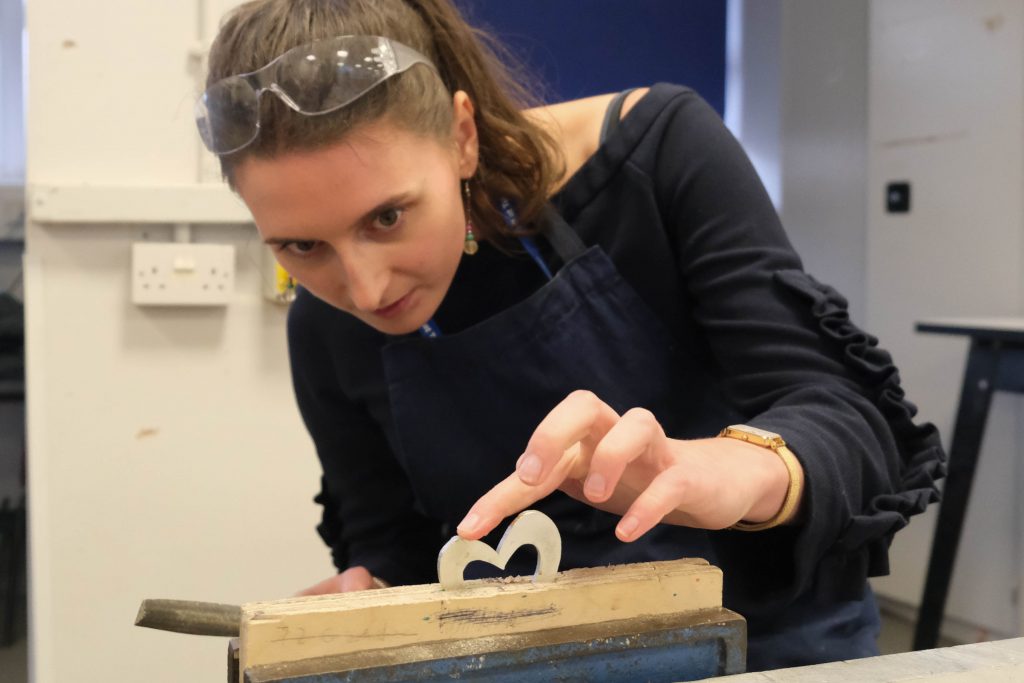
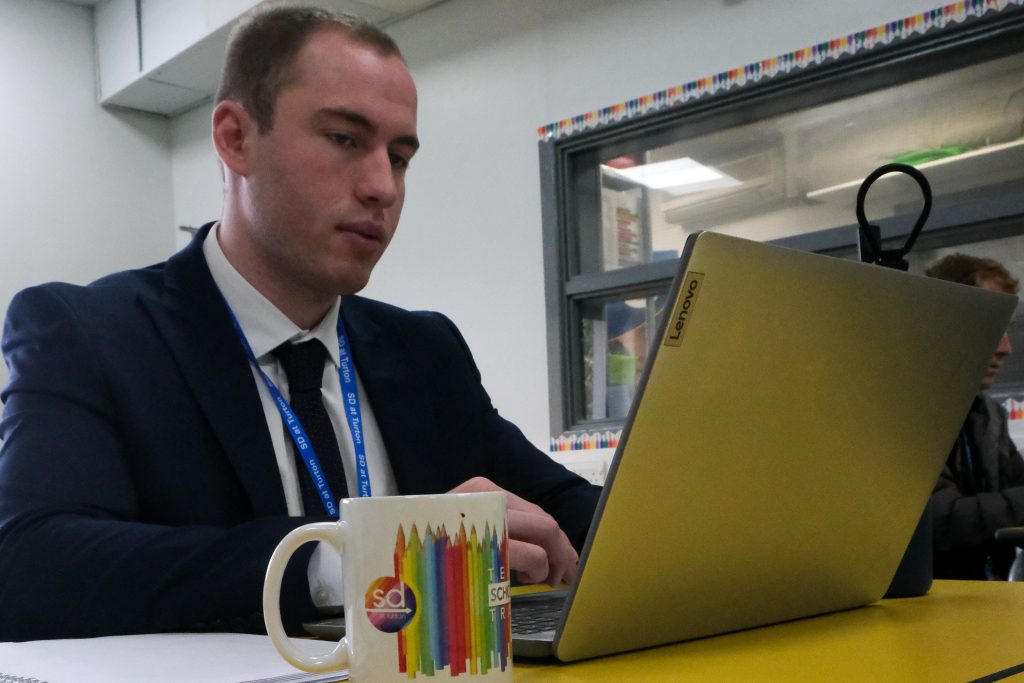
If you want more information about our programme, feel free to email the team at sd@turton.uk.com,
or call us on 01204 333233, ext. 6218
School Direct at Turton
Turton High School
Bromley Cross Road
Bolton
BL7 9LT
